
PRIVATE SCHOOLS
School


School
Small Classes • Commitment to Diversity, Equity, and Inclusion • Sense of Community • High Academic Standards Dedicated Teachers • Afternoon Programs • Performing/Visual Arts • Athletics • Experiential Learning
Join these Greater Boston independent schools for open houses this fall.
Meridian Academy Boston11–18y(5–12) 9/11, 6–8 p.m. and 10/14, 6–8 p.m.
Website
meridianacademy.org
Atrium School Watertown 4–14y (PK–8)9/25, 7–8:00 p.m. (virtual), 10/19, 10 a.m.–1:00 p.m. atrium.org
The Rivers School Weston 11–18y (6–12)9/28, 12–2:00 p.m. (US), 3–5:00 p.m. (MS); 11/20, 6–8 p.m. rivers.org
Boston University Academy Boston 13 –18y (9 –12)9/28, 12:30–2:30 p.m. and 12/2, 6:30–8:30 p.m. buacademy.org
Riverbend School S. Natick18 mo–14y (tod–8)10/4, (toddler–preK)11 a.m.–12:00 p.m. and 12/11, (k-8th) 6:30–8:30 p.m. riverbendschool.org
The Roxbury Latin SchoolWest Roxbury12 –18y (boys 7 –12)10/4, 9:30 a.m. –1:30 p.m. and 11/2, 12 –4 p.m. roxburylatin.org Commonwealth School Boston 14–18y (9-12)10/6, 6:30–8:30 p.m. and 11/16, 2:30–4:30 p.m. (both virtual) commschool.org
The Learning Project Boston 5–12y (K–6)10/9, 11/13, 12/11 and 1/8 8:30–10:30 a.m. 11/1 9–11:00 a.m. learningproject.org
St. Sebastian’s School Needham 12–18y (boys 7–12)10/9, 5:30 p.m. and 11/18, 5:30 p.m. stsebs.org
Thacher Montessori School Milton 18 mo–14y (tod–8)10/9, 6–7 p.m. (virtual) and 12/10, 11:30 a.m.–1 p.m. at Thatcher (RSVP) thacherschool.org
The Woodward School Quincy 10–18y (girls 6–12)10/9, 6–8:00 p.m. and 12/6, 10:00 a.m.–12:00 p.m. woodwardschool.org
The Winsor School Boston 10–18y (girls 5–12)10/15, (LS) 6:30 p.m., (US) 7:30 p.m. (both virtual) winsor.edu
Beaver Country Day SchoolChestnut Hill11–18y (6–12)10/16 and 11/6, 6:30–8:30 p.m. bcdschool.org
The Fessenden SchoolWest Newton4–15y (boys PK–9)10/16, 8:30–10:30 a.m. and 11/20, 8:30–10:30 a.m. fessenden.org Pingree School S. Hamilton14-18y (9-12)10/18, 11 a.m.-2 p.m. pingree.org
Boston Trinity Academy Boston 10–18y (6–12)10/18, 12 - 2 p.m. and 11/18, 6-8 p.m. bostontrinity.org
Noble and Greenough School Dedham 11–18y (7–12)10/18, 8:30–11:30 a.m. (MS) and 10/25, 8:30–11:30 a.m. (US) nobles.edu
Concord Academy Concord 13–19y (9–12)10/18, 9 a.m. concordacademy.org
Dexter Southfield Brookline 4–18y (PK–12)10/18, 9 a.m.–12 p.m. (PreK–5) and 11/15, 9 a.m.–12 p.m. (grades 6–12) dextersouthfield.org Thayer Academy Braintree 10–18 y (5–12)10/18, 9:00 a.m.–1:00 p.m. (US) and 8:30 a.m.–11:30 a.m. (MS) thayer.org Montrose School Medfield 11–18y (girls 6–12)10/19, 1–3:30 p.m. and 11/12, 6–8:30 p.m. montroseschool.org Brimmer and May SchoolChestnut Hill4–18y (PK–12) 10/19, 10 a.m.–4 p.m. brimmer.org Belmont Day School Belmont 4–14y (PK–8)10/19, 9 a.m.–1 p.m. (in person) and 11/15, 9–10:30 a.m. (virtual) belmontday.org Park Street School Boston2–12y (tod–6)10/20, 6–8:00 p.m. and 11/5, 9–11:00 a.m. parkstreetschool.org Dedham Country Day School Dedham 4–14y (PK–8)10/24 and 11/6, 8:30–10:30 a.m. dedhamcountryday.org Meadowbrook School Weston 4–14y (Jr. K–8)10/24, 2:00 p.m. (LS), 10/28, 9:30 a.m. (MS) meadowbrook-ma.org Falmouth Academy Falmouth 12–18y (7–12)10/25 and 1/24, 9:30–11:30 a.m. falmouthacademy.org
German International SchoolBoston3–18y (PS–12)10/25 and 11/22, 10 a.m.–12 p.m. (Preschool - Grade 3)gisbos.org
Fayerweather Street School Cambridge 3–14y (PK–8)10/25, 10 a.m.–12 p.m. fayerweather.org
The Cambridge School of Weston Weston 14–19y (9–12)10/25, 9 a.m.–12 p.m csw.org Waring School Beverly 11–18y (6–12)10/25, 9–11:30 a.m. and 11/11, 10:30 a.m.–12:30 p.m. waringschool.org
The Chestnut Hill SchoolChestnut Hill3–12y (PS–6)10/26, 10 a.m.–12 p.m tchs.org Ursuline Academy Dedham 12–18y (girls 7–12)10/26, 11 a.m.–2 p.m. and 12/4, 6–8 p.m ursulineacademy.net
The Newman School Boston 12–19y (7–12)10/26, 9–11:30 a.m. (MS) and 12:30–3:00 p.m. (US) newmanboston.org
Kingsley Montessori School Boston 2–12y (tod–6)10/30 and 11/19, 8:30 a.m. kingsley.org Dana Hall School Wellesley 10–18y (girls 5–12)11/1, 1–3:30 p.m. and 1/8, 5:30–7:00 p.m. danahall.org
Tenacre Country Day School Wellesley 4–12y (PK-6)11/1, 10 a.m.–12 p.m. and 11/20, 7–8:15 p.m. tenacrecds.org
International School of Boston Cambridge 2–18y (PS–12)11/1, 10–12 p.m. (all school in person) & 11/13, 1–2p.m. (virtual) isbos.org
Milton Academy LS and MS Milton 5–14y (K–8)11/1, 2–4 p.m. (LS and MS) milton.edu
Fay School Southborough 5–15y (K–9)11/2, 1–3 p.m. fayschool.org
Newton Country Day SchoolNewton10–18y (girls 5–12)11/2, 1–3:00 p.m. newtoncountryday.org
Shady Hill School Cambridge4–14y (PK–8)11/2, 1–3:00 p.m. (all school) and 11/20 5:30 –7:00 p.m. (MS)shs.org
The Park School Brookline4–14y (PK–8)11/2, 10 a.m.–1 p.m. parkschool.org
Lesley Ellis School Arlington2.9–14y (PS–8)11/2, 2–4 p.m. (all school) and 11/18, 7–8 p.m. (MS) lesleyellis.org
Jackson Walnut Park SchoolNewton18 mo–12y (tod–6)11/6, 9 – 11:30 a.m. and 12/9, 6:30–8:00 p.m. jwpschools.org
The Fenn School Concord9–15y (boys 4–9)11/16, 10 a.m. fenn.org
The Rashi School Dedham4–14y (PK–8)2/4, 6 p.m. rashi.org
Visit school websites for details.
The schools listed above do not discriminate on the basis of race, religion, national origin, disabilities, sexual orientation, gender identity, or family composition in their admissions, financial aid, or educational policies.

Pediatric Dentistry
Wesley Barton, DMD, FAAPD
Bahar Houshmand, DDS
Ava Ghassemi, DMD
Mahdieh Beheshti, DMD
Jessie Tsai, DMD

Dentist
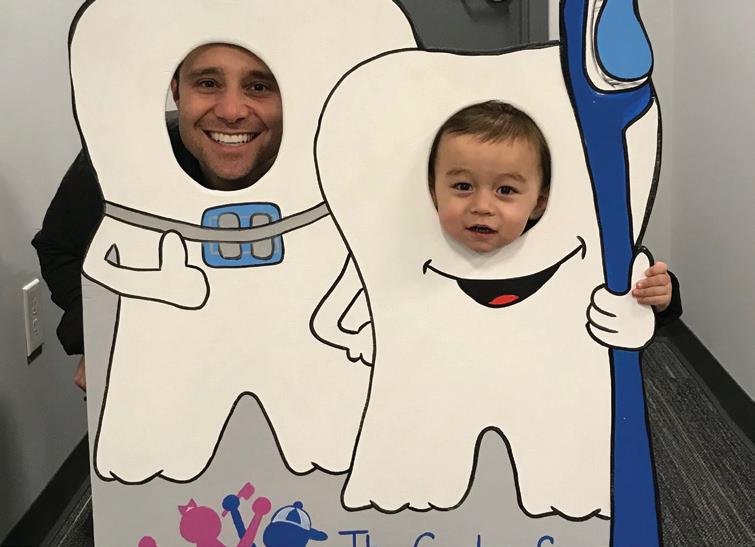
Orthodontics
Roger Taylor, DMD
Shahrzad Khorashadi, DMD
Oral Surgery
Evaneet Sidhu, DMD
Michael Gu, DDS


Orthodontist



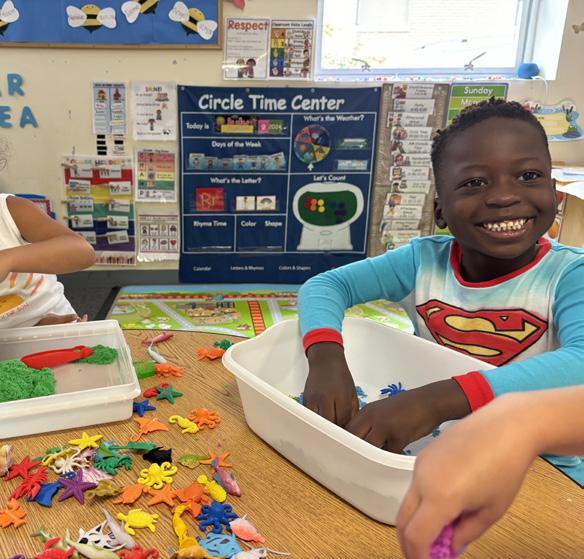

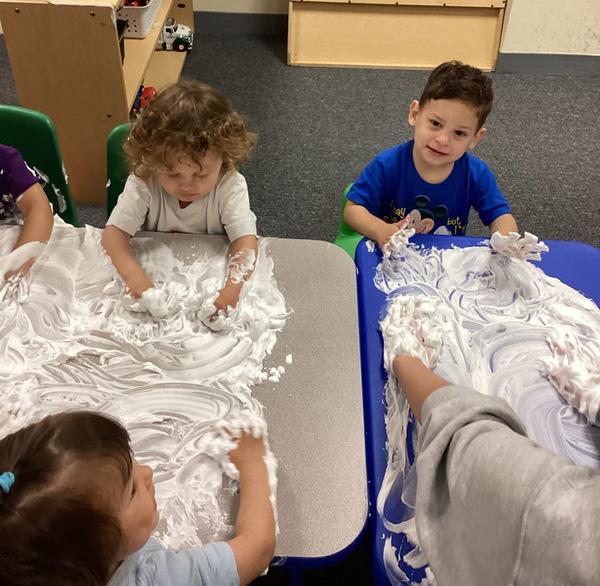


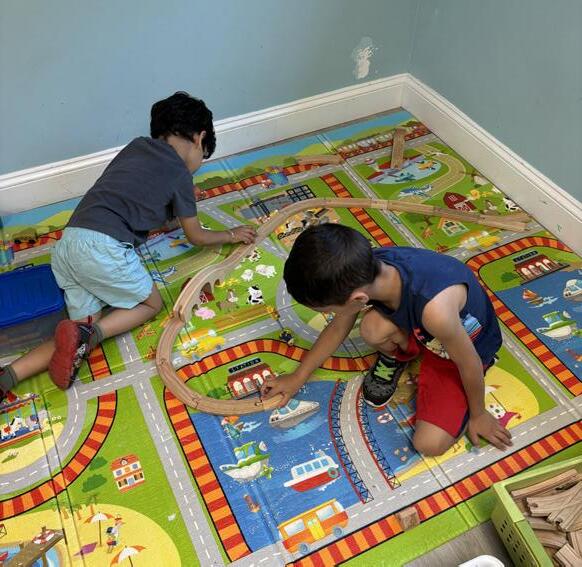

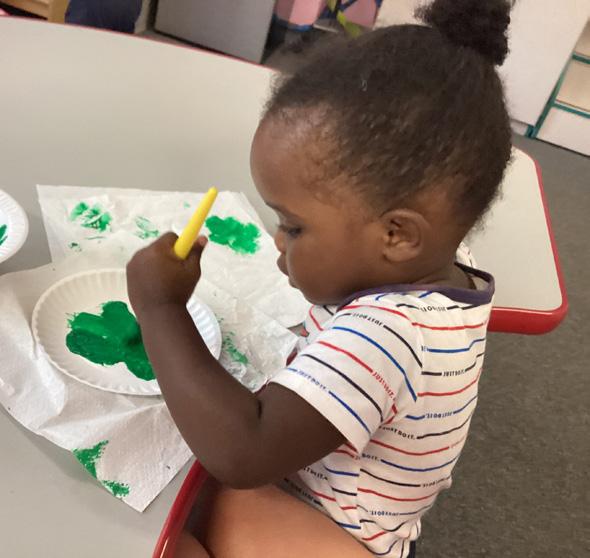
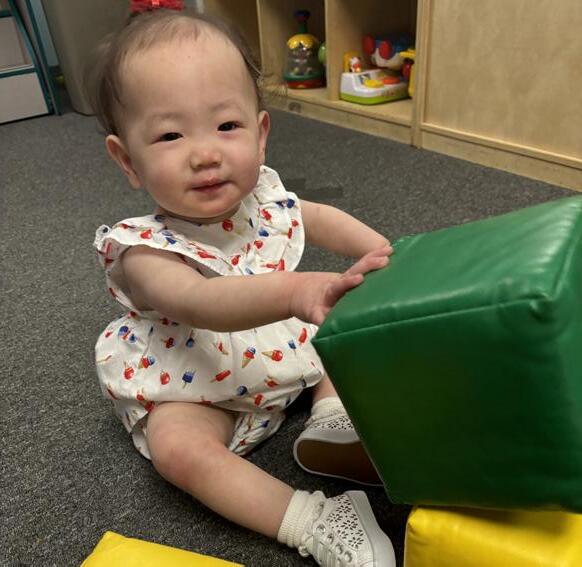








We asked and you told us who your New England favorites are, in droves! Boston Parents received over 200,000 votes from you guys! Awesome! We have your places to vacation, museums to visit, restaurants, schools, medical, special needs and the list goes on and on! Plus, you can find all of the categories online at BostonParentsPaper. com. Mark your calendars! Voting for 2026 Family Favorites starts in Early January.
Pregnancy is often described as a magical time. Expecting parents brainstorm baby names, decorate nurseries, and read every parenting book in sight. Everyone wants to be a good parent—after all, it is one of the most important and difficult jobs there is.
With autism now estimated at 1 in 31 children—and even higher for boys—many mothers-to-be feel pressure to avoid anything that might raise the risk. They skip dental work, delay coloring their hair, give up tuna sandwiches, and of course, abstain from smoking and drinking. So when headlines warn that acetaminophen use during pregnancy “causes” autism, the fear can feel overwhelming.
But this claim grossly oversimplifies one of the most complex neurological conditions. Yes, some studies suggest a correlation between acetaminophen use in pregnancy and autism. But why was the acetaminophen used in the first place? Fever during pregnancy is already known to increase risks for complications and birth defects. In other words, the underlying condition—not the medication—may be the true culprit. When Harvard and Mount Sinai researchers reviewed the evidence, they found the studies too inconsistent to combine in a meaningful meta-analysis. And the most comprehensive study to date, conducted in Sweden, found no causal link at all.
The truth is, autism is far too complex to be reduced to a single explanation. Genetics play a central role, and changes in diagnostic criteria have also driven rising prevalence rates. Since 2013, a diagnosis no longer requires a language delay; deficits in social communication alone can qualify. Asperger’s

is no longer a separate category—everyone now receives the same autism label, defined by levels of severity from 1 to 3.
If pregnancy fears sometimes oversimplify causes, treatment hopes can oversimplify solutions. Take leucovorin, also known as folinic acid. In oncology, it has a proven role as a “rescue drug,” protecting healthy cells from chemothetapy’s toxic effects by bypassing blocked folate pathways. Some researchers have hypothesized that it could also “rescue” folate metabolism in the brain, especially for children with autism who carry antibodies that block folate transport across the blood–brain barrier. A handful of small studies have suggested promising results in communication and behavior.
But once again, plausibility is not proof. Large, rigorous clinical trials are still lacking. Which brings us to the same recommendation as with any experimental biological treatment: consult your clinical team, and above all, collect robust baseline data before trying the medication. Parents need measurable indicators—whether in language, social interaction, or daily functioning—to know if real improvement is happening, or if hopeful perception is leading the way.
The bottom line: both causes and treatments for autism are complicated. Mothers should not be made to feel guilty over unproven risks, and parents of children with autism should not be pressured into chasing every experimental therapy without evidence. Parenting is hard enough. Families deserve clarity, honesty, and support—not blame and false promises. Y
Mariela Vargas-Irwin, PSYD, BCBA-D, LABA obtained her doctoral degree from Rutgers University and has over 30 years of experience working with children with autism and other developmental disorders
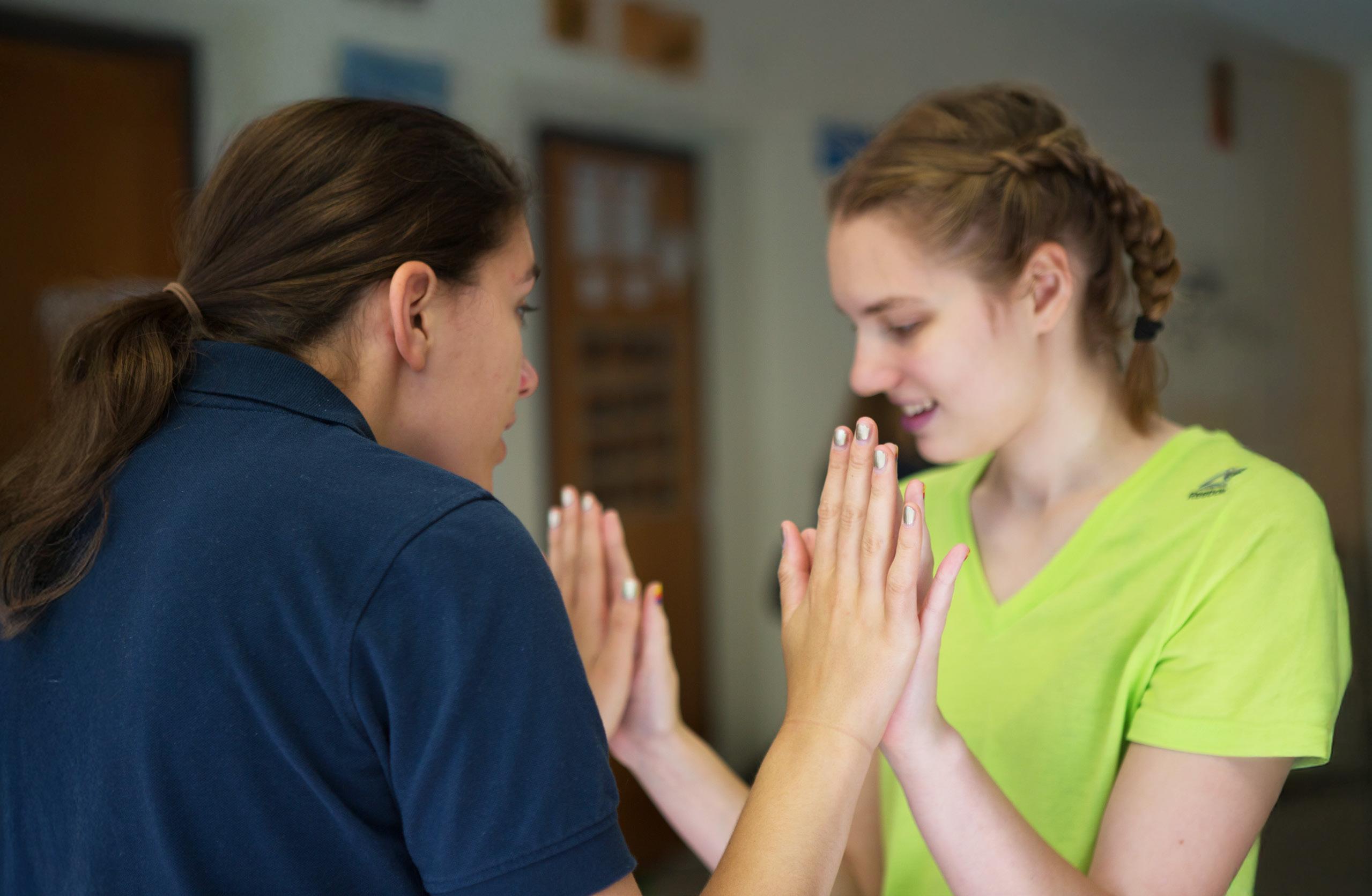
The journey following an autism diagnosis can be overwhelming. With 1 in 31 children now affected, you're not alone. May Institute is here to help.
For over 70 years, May has been a leader in autism care. From our May Centers for Children & Families serving young children to our specialized schools for elementary through high school students across Greater Boston, we provide compassionate, evidence-based care to equip your child with the skills they need for a fulfilling life.

or call
and schedule

What better way to keep track of all the preschool and private school’s admission events than this handy tool! With over 50 entities participating, check out the Online Open House & Admissions Calendar on BostonParentsPaper.com. Look for the School Open Houses button on the main header bar and tap. Don’t forget to tell them you saw their event on https://bostonparentspaper.com
Halloween is one of the most fun holidays for children. It gives them a chance to break away from their “every day self” to become their favorite princess, super hero or cartoon character for the night. Through all the fun and games, Halloween is also known to have the potential of becoming one of the most injurious holidays. Most of these injuries are preventable, so before heading out to Halloween parties and trick or treating this season, be sure your children have taken all the safety measures possible!
• Children should never carve pumpkins on their own. Have them participate by drawing the face they want on the pumpkin and have an adult do the cutting.
• Avoid lighting your pumpkin with a candle. Instead use a flashlight or battery-operated candle to avoid a potential fire in the home.
• When choosing a costume, be sure all parts are flame resistant.
• Before leaving the house, be sure your child’s costume is equipped with reflective stickers or attachments and that they are carrying a flashlight or glow sticks, so that cars can see them better when crossing the street.
• Be sure your child’s costume is not obstructing their view of the road and that it is free of tripping hazards.
• Always accompany your children when trick or treating. No matter how friendly the neighborhood, children should never be out without adult supervision.
• Be sure to always cross the street at corners and on crosswalks. Though it may be tempting for

children to run from house to house, they must still adhere to the rules of the road to avoid potential hazards.
• When crossing the street, you and your children should avoid looking at any electronic devices, and always look left, right, left before stepping out into the street.
• Always walk on the sidewalk and stay on well-lit streets. If there is no sidewalk, be sure to walk facing traffic, with your children on the inside of the road.
• Walk pass driveways and parking lots slowly and carefully in case cars are entering or exiting.
• Have an emergency plan set up with your child before leaving the house and be sure your child is familiar with calling 911 in case of an emergency.
• When returning home, be sure to check your child’s candy before allowing them to eat any.
• If you child has a food allergy, be sure to read all labels to ensure it is free of any hazardous ingredients to them.
• Ration your child’s treats to avoid them consuming too much sugar and potentially becoming ill. Y


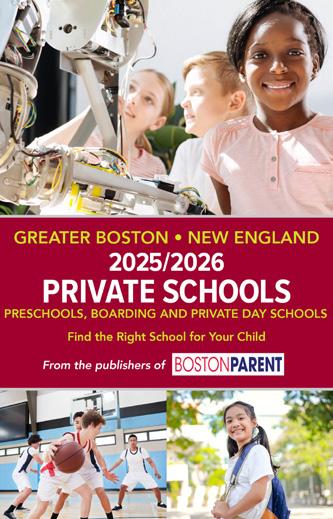





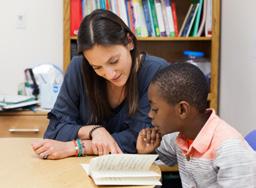







Looking for a little Halloween fun that won’t send your kids screaming for the hills? Check out this month’s family-friendly Halloween events and attractions across Massachusetts and beyond.
Salem annually transforms into a Halloween lovers paradise in October with Kids Fun Fest, Haunted Marketplace, a Kid’s Pub and more. Throughout the month, there are events for little ones and braver “big kids,” such as haunted house tours, witch trial re-enactments and costume balls. For more events and details, visit www.hauntedhappenings.org
Come on down and make lasting memories at Connors Farm. Experience the feel of the country only minutes from your home. With numerous daytime attractions, there is something for all ages! Thru November 2nd. Connors Farm, 30 Valley Road (Rt. 35., Danvers; www.connorsfarm.com
Phantoms by Firelight returns to Old Sturbridge Village this Fall… and it’s bigger than ever! Step into the firelit shadows of history and uncover its eerie tales. Learn about the history of Halloween traditions, play games, find treats, and listen to ghost stories by the bonfire. Plus, be entertained by the spectacle of mesmerizing performances including fire breathing and flame spinning, as well as acrobats flying high over the Village with their vampire-like ways from Oct. 10 - 26. Old Sturbridge Village, One Old Sturbridge Village Road, Sturbridge; www.osv.org
Take advantage of the spooky seasonal atmosphere and experience something different in October. The

overnight won’t be super scary, but it will be spooky and contain references to 19th-century ghost stories and folklore. Check out their website for more information about the activities and programming that will take place. Limited spaces available. Saturdays in October. Old Sturbridge Village, One Old Sturbridge Village Road, Sturbridge; www.osv.org
5,000 illuminated creatively carved jack-o-lanterns along a beautiful wetland trail at the Roger Williams Park Zoo from 6-10:30pm evenings through Halloween. 1000 Elmwood Ave., Providence, R.I. All tickets must be bought in advance; www.rwpzoo.org
Oct. 24, at 7:00pm, Join a tour of the beautiful 1806 Gore Mansion.

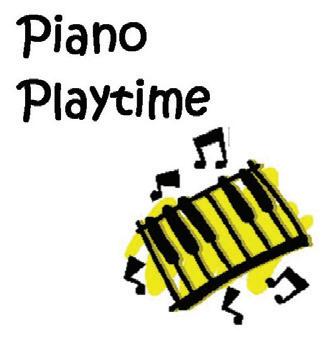
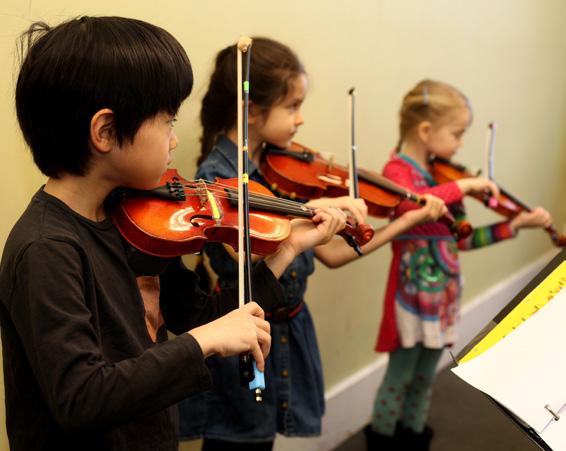
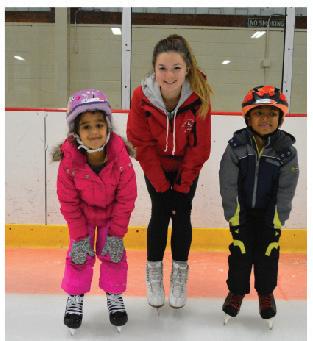





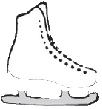





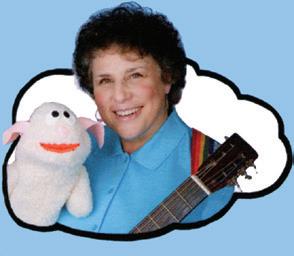



You’ll hear creepy stories from Gore Place’s rich history: tales of lady pirates, escapees, drownings, and strange goings on over the 300 years of the Gore estate. Along the way you’ll see the mansion in a new (and slightly creepy!) 52 Gore St., Waltham; www.goreplace.org
Saturday, Oct. 26, at 1pm, Come celebrate a not-so-scary Halloween with your family at Gore Place! Join us on our farm where we’ll be stuffing scarecrows, painting pumpkins, sipping cider and howling on hayrides. Activities will happen continuously from 1-3 pm for the two hours, with hayrides every 20 minutes.This event is designed with children in mind, but guests of all ages are welcome. It is also NOT a trick-or-treat event. 52 Gore St., Waltham. Tickets available at www.goreplace.org
Join in for the annual Harvest Festival to support the Pediatric Care at Emerson Hospital. A day of family fun featuring games and prizes, hayrides live music, PYO pumpkins, 4-H animals, a silent auction and a la cart food. All pumpkin sales during the festival will go towards Pumpkins for Pediatrics at Emerson Hospital. Admission for this event will be sold online and at the door. Saturday, Oct. 11 at Verrill Farms, 11 Wheeler Road, Concord; www.verrillfarm.com
Trick or treat among the animals at the Stone Zoo on Saturday, Oct. 18, and Sunday, Oct. 19, 9am – 1pm. Kid’s costume contest, mystery animal encounters and terrifying tasty treats to be had. 149 Pond St., Stoneham. Advanced General Admission tickets required; www.zoonewengland.org





Enjoy music and activities at this Discovery Museums festival, on Saturday, Oct. 25, & Sunday, Oct. 26. Dress for the occasion and give your Halloween costume the chance to spook, sparkle, and shine. Challenge yourself to a few holes of Pumpkin Putt Putt and other outdoor games with a frightfully fun twist. Use your powers of observation on a Spooktacular Scavenger Hunt and expect other ghostly surprises to pop up around the Museum! 177 Main St., Acton; www. discoverymuseums.org Y

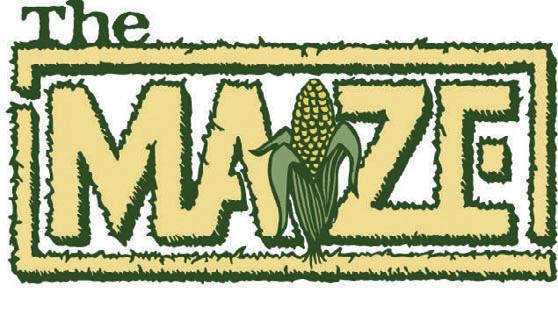






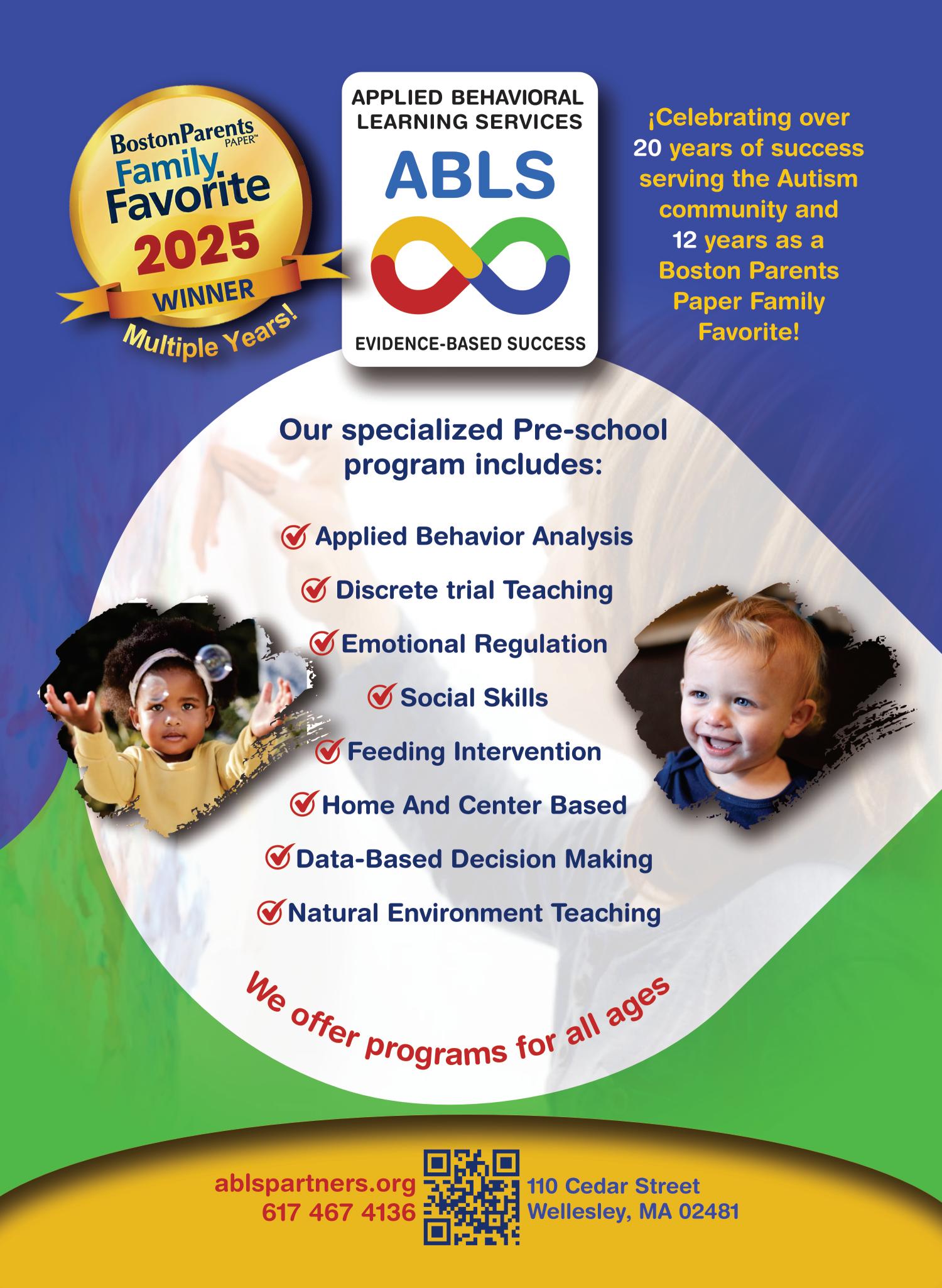

Does your elementaryaged child suddenly get a stomach ache the day of a math test? Maybe your middle schooler constantly declares “I hate math!” or your high schooler doesn’t like Algebra because he or she doesn’t see how it connects to real life.
By Janeen Lewis
If any of this sounds familiar, there is good news. Recent research shows that despite what they may think, most students can succeed at high levels in math. While it may be hard to disguise a dislike of math, if parents model a positive outlook, children are more likely to feel the same way. Research also shows that students like math more when they understand how it applies to their future.
Here are 25 easy ways parents can make math fun, interesting and relevant, and ultimately help children become better at it.
1
Use measuring and fraction skills when you bake or cook with your child. When the measuring cup or spoon you need is dirty, ask your child to use a different size utensil correctly to get an equivalent amount.
2
Use grocery store math. For example, have your child figure out how many pounds of produce to get without going over a certain dollar amount. Say, “Please weigh and bring me three dollars’ worth of granny smith apples.”
3
Take math outdoors. Make a hopscotch with addition or multiplication facts in the squares. Pick up sticks or use straws and make as many interconnecting squares or triangles as possible on the grass. Or Combine math with your child’s favorite sport. For example, if your child likes baseball, assign different points for single, double and triple hits. Have your child keep score.
4Check out Texas Instruments’ “STEM Behind Cool Careers” (https:// education.ti.com/en/activities/stem/gen-stem) for a variety of videos connecting algebra, geometry and physics to real world jobs like fashion design, flying jets and more. Students can also take a quiz at this site to find their “stem style.”

5
Learn about the lives of famous mathematicians and what they accomplished. Some interesting mathematicians include: Pythagoras, Archimedes, Albert Einstein, Isaac Newton, John Nash, Hypatia of Alexandria, Julia Robinson, Emily Noether and Maryam Mirzakhani.
6
Let your child plan a special dinner. Then give them a budget and let them shop for the ingredients without going over the budget.
7
Make technology your friend. Games and apps make learning math facts more fun than flash cards and drills. For homework help, try Didax’s virtual manipulatives at www.didax.com/math/virtualmanipulatives.html.
8
Introduce your teen to a fun math club. FIRST Lego League and FIRST Tech Challenge involve math, science and engineering skills.
9
Plan a trip together, calculate the miles you will travel at a designated speed. Decide how long it will take to get there.
10
Give your child an allowance that they have to manage. Together decide how much they will save, spend and give away.
11If your child is a teen with a job, help them write a budget and open a savings account.
12
Teach your child mental math tricks. These are like magic tricks in the math world, breaking down calculator-size problems into problems that can be solved mentally. Try Thoughtco.com for 9 Mental Math Tricks and Games (www.thoughtco.com/mental-mathtricks-games-4177029).
13
Sing songs and watch math music videos. Check out “Schoolhouse Rock!” (“Multiplication Rock” and “Money Rock”) and “Numberock.” They are catchy ways to teach important math concepts.
14
Read math themed picture books. “Bedtime Math” includes fun short stories with math questions for different age levels and promotes discussion of math strategies. Other good ones include “The Greedy Triangle,” “The Grapes of Math” and” How Big is a Foot?” “G is for Googol” is an alphabet book for tweens and teens.
15
Have your tween or teen pick out the make, model and year of a car they would like to buy when they are 18. Look up the value of the car and figure out how much they will have to earn every week until they are 18 to buy the car.
16Get up and move! Take a brain break and play a math-themed YouTube or GoNoodle video that teaches about a math concept. These videos combine movements with vocabulary to help kinesthetic learners.
17 Go on a shape hunt. Find various geometric shapes around your house and yard. Draw or take photographs and label the shapes and what they comprise (for instance, the roof, the mailbox, the deck railing) and make your own version of a book like Tana Hoban’s Shapes, Shapes, Shapes.
18
Have daily countdowns to special events, or do a ___ shopping days until Christmas starting on January 1st.
19
Redecorate their rooms. Have your teen do a scale layout drawing of the room to make sure new furniture or decorations will fit. Teens and younger kids alike can measure windows and floor space to make sure curtains and rugs fit before purchasing.
20
Play board and card games that inspire mathematical thinking. Some to try are Uno, Crazy Eights, Mathopoly, Qwirkle, Yahtzee, and Rummikub. For Teens, Coolmath Games, Math and Reading Help (which offers high school math games), Prodigy and board games such as Blokus and Settlers of Catan, and creative activities like math bingo and escape rooms.
21Tell math jokes. Yes, they can be corny, especially for teens, but keep it humorous and light, and they may just remember the vocabulary.
22
Have fun with food. Cut food into fractional parts and use the food fractions to introduce equivalent fractions. For younger children, cut sandwiches and pizzas evenly and talk about equal parts.
23
Take a tour of your local bank. Talk to your child about words like loan, interest and principal.
24
Celebrate special math days like the 100th day of school. On Pi Day talk about what it means and why it is important. Make your child’s favorite pie.
25
Put math in their hands. Use Legos to teach about area and perimeter. Math manipulatives like rulers, seamstress tapes, tangrams, pattern blocks, play money, fraction bars, counters, and geometric shapes are great for kids to make discoveries with while playing. Y
Janeen Lewis is a freelance writer and certified teacher with a Master’s Degree in education. She loves to see children get excited about learning math.


By Barbara Dianis

Students diagnosed with dyslexia, ADHD or a learning disability may wonder whether they will be able to graduate from high school and/or collegiate studies. I worried over the same issue myself because I was diagnosed with dyslexia in a time period when there were very few strategies to help strengthen my learning disabilities. Education was very important to me, and I wanted to graduate from high school and college despite my scholastic challenges. Therefore, I set out to teach myself ways to overcome my learning obstacles and graduate. Through the implementation of systematic step-by-step educational solutions, I, like
my students with learning issues, began to master how to overcome learning challenges.
1Plan homework schedule and study times to begin the school year. The planned work and review times will help your child or teen to help meet the scholastic increase of the new grade level. The plan should include additional study time even if the child or teen has study halls during their school day. The times can be adjusted on a successful academic achievement basis.
2
Children and teens entering a higher grade level typically need to upgrade their study skills to help them keep pace with their current curriculum. Children and teens benefit from reviewing the notes they take in each of their classes for at least five minutes a day. Reviewing the class notes taken will help children and teens retain more core learning concepts. Consistent review will also assist their ability to access the information on tests. Younger students can benefit from a few minutes of reviewing concepts such as grammar and phonetic rules.
3
A parent and their child benefit from checking the student’s grades online together several times a week. Parents who check grades online with their son or daughter show them they care about education. Additionally, if there are downturns in their grades or missing assignments, then educational solutions can be applied before their difficulty becomes a scholastic issue. The extra accountability generally helps students of all grade levels stay on track throughout the school year. Students of all ages often respond positively to their parents’ praise when they see good grades.
4
Tests and quizzes become an important part of the academic experience. Children and teens should add more study and preparation time to the system they used in the previous grade level. Students of all ages benefit from studying for tests and quizzes several days before they are given. Parents can help their student understand that their brains may need time to absorb and readily access the educational concepts they will be tested over. Waiting until the day before a test may not be the best option for students because of the increase in information, which is associated with each new scholastic level.
5
As soon as a student begins to slide, academically educational solutions should be applied to help the child or teen overcome their academic obstacles. All too often scholastic slides are not addressed early enough because the parent may feel it is a problem that will correct itself. It is generally better to address the academic difficulty early on before the child’s or teen’s grades begin to spiral downward. One way to address scholastic slides is to help your child correct mistakes on graded assignments that have multiple mistakes on them.
6
Parents can help make learning fun during homework and study time. Children and teens can make review and drill time into a game show format using flash cards. They can make these from their study material. When review time is presented in a game show format, students generally are more
engaged throughout the learning process. Parents may wish to host a study review time for their child with several students in their son’s or daughter’s classes. Students of all grade levels generally enjoy the review process when it is made into a game they are playing with their friends.
Parents can help their child or teen develop an interest in learning by asking their teen to tell them three concepts they learned in their classes each day. Asking your child or teen to report several core concepts learned in class can also help improve his or her ability to focus in class. In addition, the student typically will report the class to be more interesting and fun.
If a child or teen is struggling in the area of math, then prelearning the mathematical formulas can really help increase the student’s understanding of new concepts. Previewing the key concepts from the upcoming lesson can help the student absorb and glean more information from the instructional teaching lesson. Students can pre-learn new math concepts by reading the following day’s lesson in their online text or textbook. Next, the student should make a notation of concepts that are not understood. The child or teen should ask the teacher for further instruction on the more difficult mathematical concepts. In addition, students benefit from reviewing key terms to increase their mathematical vocabulary to improve their understanding during the lectures.
Students of all grade levels and ages who implement educational solutions to help them overcome areas of academic weakness can improve in their educational skills. Generally, children and teenagers will discover over time they are accurately able to spend less time learning new scholastic concepts as their organizational skills and study habits improve. Students may find learning to be fun as they become capable to meet scholastic challenges and overcome their learning weaknesses. Another added benefit from implementing educational solutions into their daily study time is they may have a renewed sense of academic self-esteem, dignity and a restored positive attitude toward their studies. By igniting students’ interests and understanding, improved grades can be the result of their increased scholastic skills. Y
Barbara Dianis overcame dyslexia in her own life using self-taught strategies and techniques. She is the author of Grade Transformer for the Modern Student (LuLu Publishing Services, 2014) and has counseled parents of children with special needs for 24 years.

THE PUBLISHERS OF BOSTON PARENTS MAGAZINE TAKE THE GUESSWORK OUT OF FINDING THE RIGHT PRIVATE SCHOOL FOR YOUR CHILD, FROM START TO FINISH. The following articles are excerpts from the 2025/26 Annual Private School Guide, covering “Why Consider a Private School” and “Private School Search Timeline” from the award-winning guide. The complete Annual Private School Guide leads parents chronologically along the school-selection path, beginning with the value of private education and how to start the process of selecting a school with an emphasis on the all-important application process, including interviewing, testing, and essay writing as well as the ins-and-outs of financial assistance. Also included are school profiles and a comprehensive list of regional private schools, listed by city. Your road to the ideal school just got simpler! Access your copy today of this free resource at BostonParentsPaper.com and tap on “Our Magazines” button.
Many parents feel that their children will thrive better in what they believe is a smaller, safer environment with more room for personal attention. While public schools must follow a curriculum heavily influenced by state standards, private schools have more freedom to customize lessons to students’ individual ways of learning.
PRIVATE SCHOOLS can point to low student-teacher ratios, freedom from state standards and testing, and lots of extras like music, foreign languages, travel opportunities and art that can be underfunded in public schools. Private schools are often wellequipped with current educational technology to facilitate in class and virtual instruction. Rest assured, promise school experts, there is a school out there to suit every child.
While each school follows its own schedule, here is a typical admissions timeline. Many schools are now offering both in-person and virtual admission events.
(Of the year before you want your child to attend)
• Define your ideal school
• Find schools that match your child’s and family’s needs
• Research and ask questions of schools on your preliminary list
• Browse schools’ websites and look books to learn more about their programs and philosophies
• Request admissions and financial assistance material by phone or online
• Review admissions materials to determine which schools to visit
• Create a calendar of pertinent admission and financial assistance deadlines for the schools to which you are considering applying
• Ask elementary schools about their test schedules and make appointments
• Register for any standardized tests required for admission
• Review the test websites to learn about procedures and test dates, see sample questions, and purchase test-preparation books
• Contact schools to schedule individual tours, class visits, interviews, and “shadow days”
• Continue scheduling tours, interviews, class visits, and standardized or school-based tests
• Visit schools, virtually if necessary, during open house events, attend information sessions, and take tours
• Finalize the list of schools to which you will apply
• Take required standardized admission tests
• Continue scheduling tours, interviews, class visits, and preparing and taking standardized or school-based tests
• Watch for open house events you may want to attend
• Request teacher recommendations from your child’s current school
• Start working on applications, tuition assistance forms, student questionnaires, and essays
• Watch for any open house or school events of interest
• Request transcripts at the end of your child’s first semester
• Complete any remaining applications, questionnaires, etc. Some application materials are due as early as December.

• Pay attention to deadlines: Most applications are due in January or February, along with test scores, references, transcripts, and financial assistance forms
• For schools with February admissions deadline turn in applications.
• Visit schools applied to again or have your child participate in a student shadow day if you haven’t already
• Watch for school decisions starting in mid-March
• Watch for financial assistance decisions
• Decide which school your child will attend and let the school know
• Sign and return enrollment contracts and send deposits
• Attend events and activities for new parents and students
• Get to know other families in the school
• Sign up for fall sports and clubs Y
There are two primary categories of private schools— independent schools and parochial schools.
INDEPENDENT SCHOOLS are defined as nonprofit private schools with their own governing board of trustees. While most people commonly refer to independent schools as private, lumping them in with parochial and for-profit schools, they are distinct because they are nonprofit and self-governing.
PAROCHIAL SCHOOLS, where tuition is typically one-third that of independent schools, offer traditional instruction and have solid reputations. Families who are “in-parish,” that is, who live within the schools’ official parish boundaries or volunteer and participate regularly in the parish, get first priority. Otherwise, the application procedures are similar to independent schools.
When considering private school education, think about these benefits:
High academic standards. Private schools nurture intellectual curiosity, stimulate personal growth, and encourage critical thinking. A larger percentage of students at private schools are enrolled in advanced courses than in public.
Small classes and individual attention. Private schools have low student-teacher ratios that encourage close connections with students. The median ratio in schools that are members of the National Association of Independent Schools in 2024/25 was 8.1 students to 1 teacher.
Excellent teachers. Educators usually teach in their areas of expertise and are passionate about what they do. With more
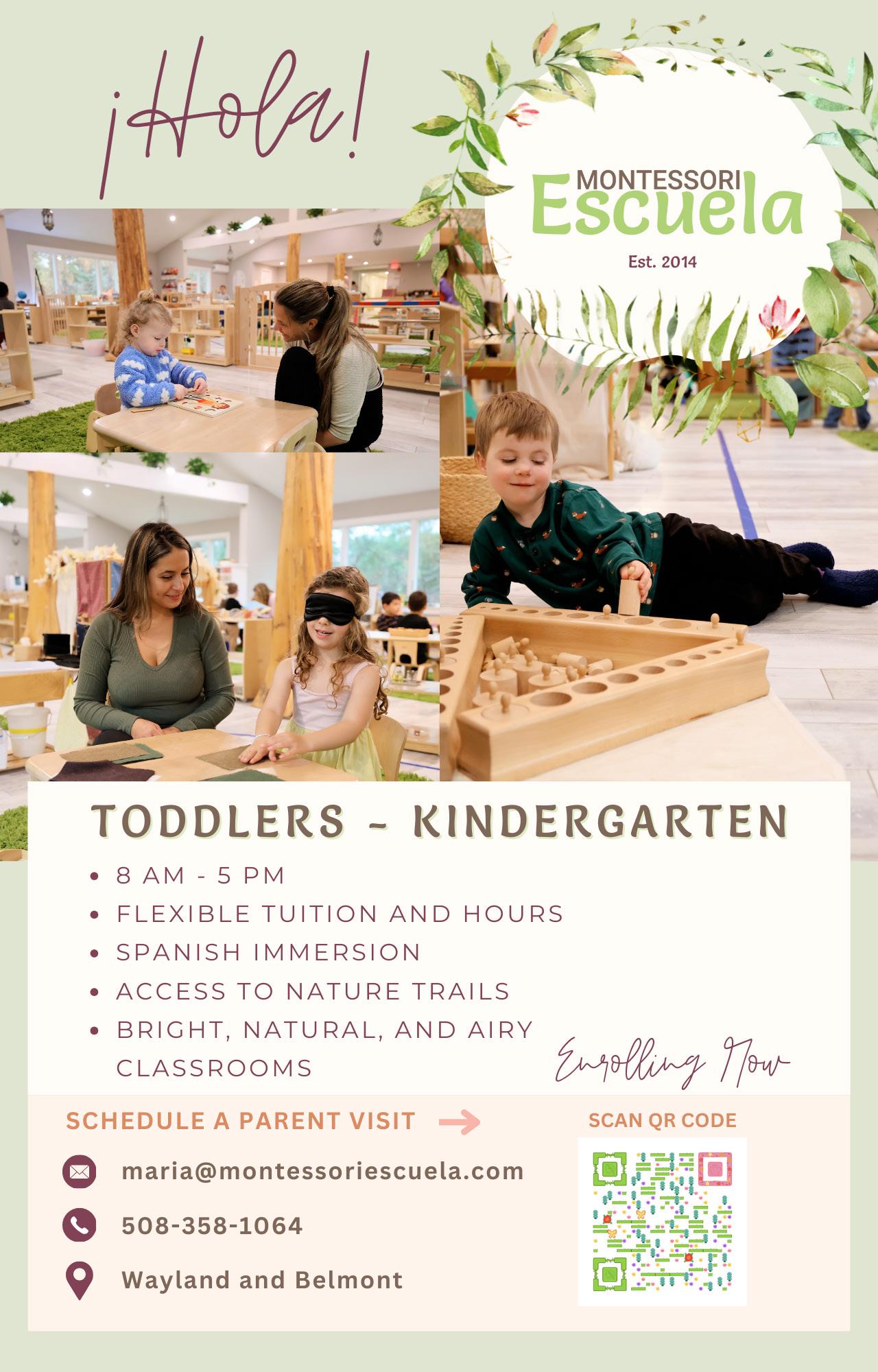
autonomy within the classroom, teachers are able to develop a full understanding of how each student learns and what motivates and inspires each child.
Greater likelihood of a student completing a bachelor’s degree or graduate degree. Independent schools nurture not just students’ intellectual ability and curiosity but also their personal and social growth and civic conscience. Opportunities extend well beyond the classroom to athletic competitions, artistic pursuits, and school leadership experiences.
Education for the whole child. Private schools nurture not just students’ intellectual curiosity but also their personal, social growth and civic purpose. Opportunities extend well beyond the classroom to athletic competitions, artistic pursuits and school leadership offerings.
Inclusiveness. Schools maintain diverse and vibrant student communities and welcome and respect each family. In 2024–25, non-white students were 34.1 percent of total independent school enrollment nationally.
A community of parents who actively participate in their children’s education. Private schools promote regular communication among students, parents, and teachers to ensure everyone is working toward the same goals for the student.
The opportunity to choose a school with a mission. You can select a school whose philosophy, values, and teaching approach is right for your child. Y







































KIDS ARE PEOPLE TODDLER/PRESCHOOL PROGRAM SERVING THE COMMUNITY FOR OVER 45 YEARS! *NEW* TODDLER ROOM NOW ENROLLING
We are centrally located in Kenmore Square. MBTA Buses and Green Line are right outside of our door Walking distance to major hospitals, BU, and the Fenway 5 colleges.
Schedule a tour today!
530 Commonwealth Ave Boston, MA 02215
617-266-0028
kidsarepeopleschool@aol.com








































Melmark New England
461 River Road
Andover • (978) 654-4300 www.melmark.org/newengland
Lesley Ellis School 34 Winter St.
Arlington • (781) 641-5987 www.lesleyellis.org
Montessori Escuela Belmont 628 Trapelo Road Belmont • (508) 358-1064 www.montessoriescuela.com
The Advent School 15 Brimmer Street Boston • (617) 742-0520 www.adventschool.org
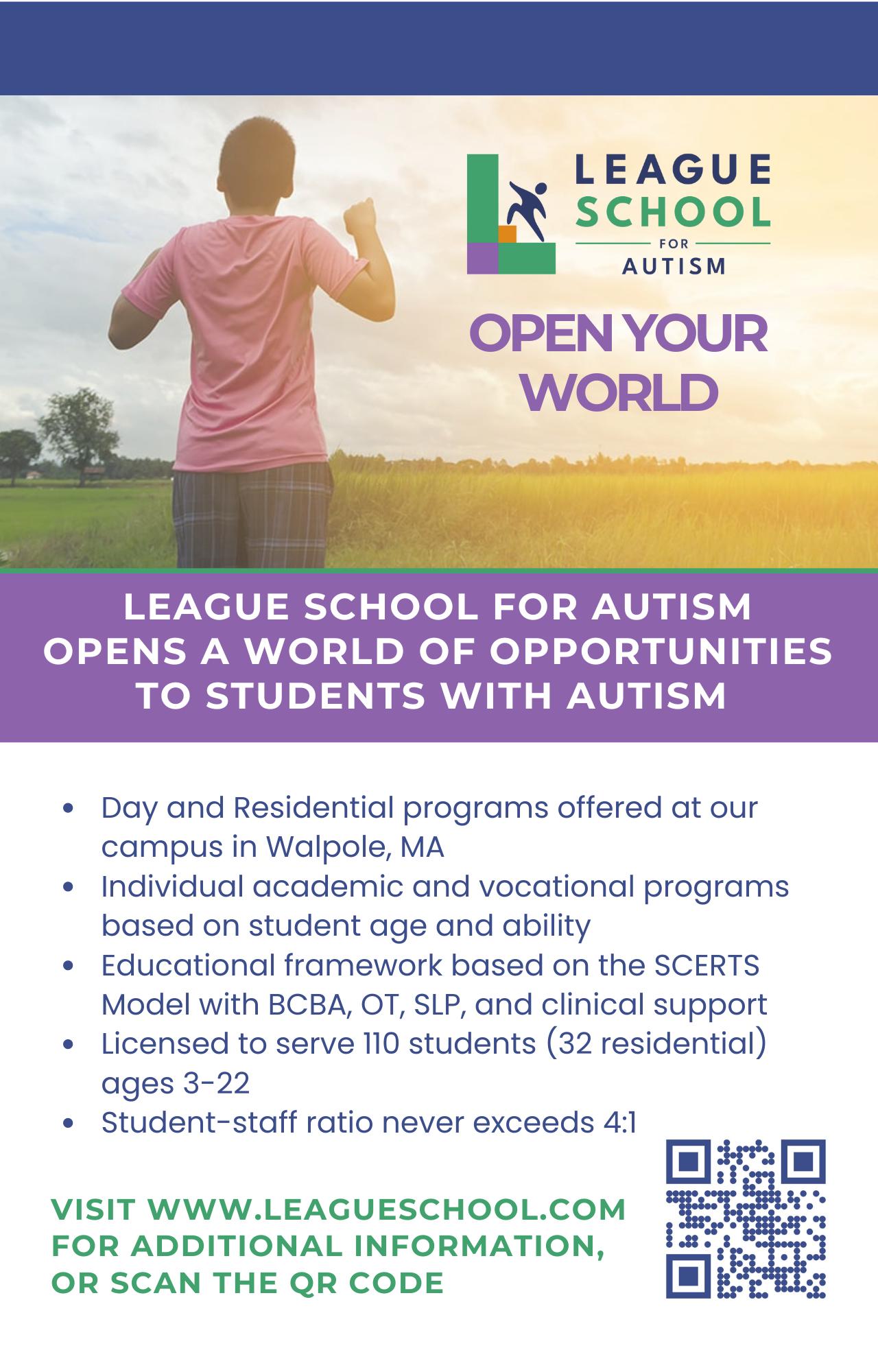
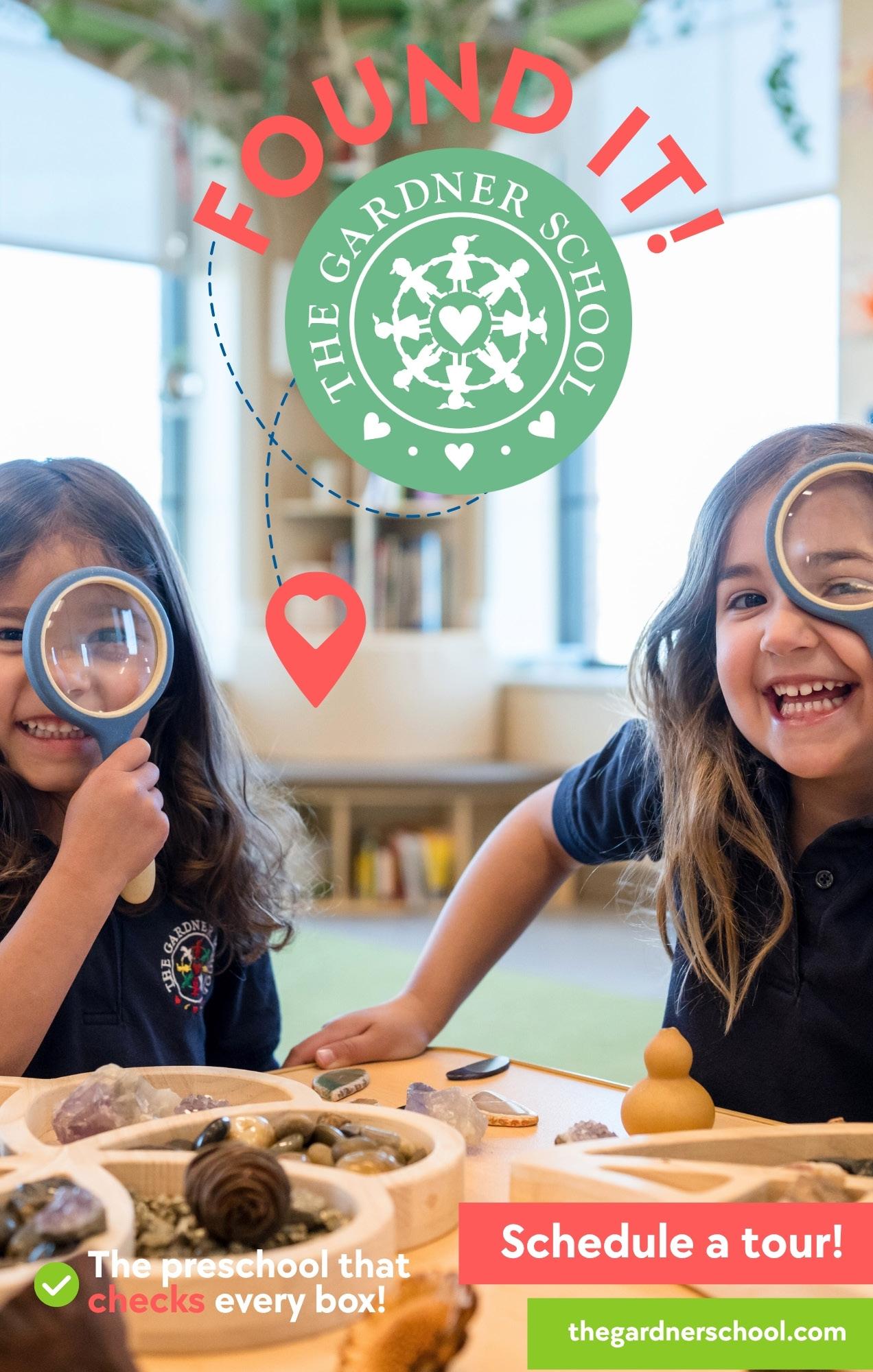
British International School of Boston
416 Pond Street
Boston • (617) 522-2261
www.bisboston.org
Kids Are People School
530 Commonwealth Aveue
Boston • (617) 266-0028
Kingsley Montessori School
30 Fairfield Street
26 Exeter Street
Boston • (617) 226-4927 www.kingsley.org
Park Street School
One Park Street
Boston • (617) 523-7577
www.parkstreetschool.org
The Gardner School
66 Wood Rd
Braintree • (781) 829-3750 www.thegardnerschool.com/schools/braintree
Toddler-12 530
Toddler-Grade 6 7:1 300
Toddler-G6 PS:5/1 225
6 Weeks - Age 5 Varies 227 Independent Call for Details
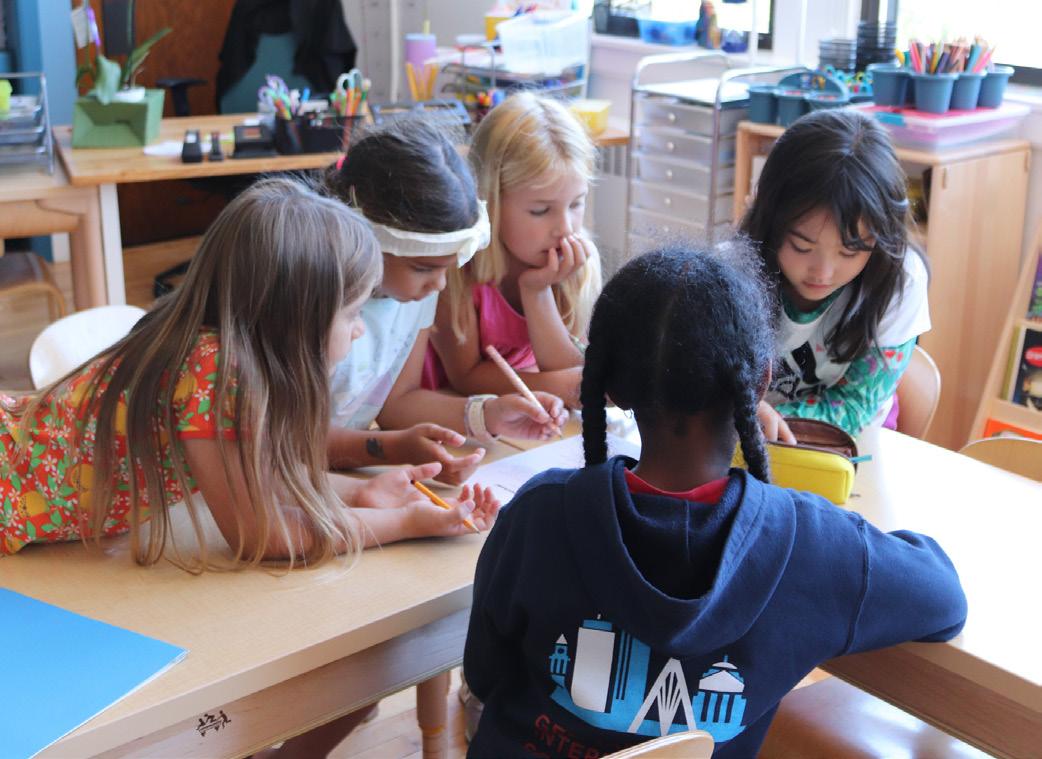
Open a world of opportunity with bilingual education in Boston for children in preschool to grade 12.

New to German? Explore Fast Track, our accelerated program for students entering preK - grade 5 without prior German experience.
Join us for a Lower Campus Open House! Oct. 25, Nov. 22, or Jan. 10 from 10am - noon Questions? Please contact admissions@gisbos.org

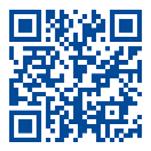



Panda Cub Academy
1200 Boylston Street
Brookline • (617) 614-7709 www.pandacubacademy.org
St. Mary of the Assumption School
67 Harvard Street
Brookline • (617) 566-7184 www.stmarys-brookline.org
Mount Hope Christian School
3 McGinnis Drive
Burlington • (781) 272-1014 www.mounthopeschool.org
The Gardner School
109 First Street, Suite 102 Cambridge • (617) 766-5702 www.thegardnerschool.com/schools/cambridge
Brimmer and May School 69 Middlesex Road Chestnut Hill • (617) 566-7462 www.brimmer.org
The Chestnut Hill School 428 Hammond Street Chestnut Hill • (617) 566-4394 www.tchs.org
Dedham Country Day School
90 Sandy Valley Road Dedham • (781) 329-0850 www.dedhamcountryday.org
The Gardner School 780 Washington Street Dedham • (781) 613-2312 www.thegardnerschool.com/schools/dedham
Applewild School
27 Jackson Road
Devens • (978) 342-6053 www.applewild.org
Applewild School
120 Prospect Street
Fitchburg • (978) 342-6053 www.applewild.org
SELA: The International Private School
75 Sgt William B Terry Drive
Hingham • (781) 741-5454
www.suescuela.com
Lexington
Lexington Montessori School
130 Pleasant Street
Lexington • (781) 862-8571 www.lexmontessori.org
Waldorf School of Lexington
739 Massachusetts Avenue
Lexington • (781) 860-5208 www.thewaldorfschool.org
Littleton
Oak Meadow Montessori School
2 Old Pickard Lane
Littleton • (978) 486-9874 www.oakmeadow.org
Millis
Woodside Montessori Academy
350 Village Street
Millis • (508) 376-5320 www.woodsideacademy.com


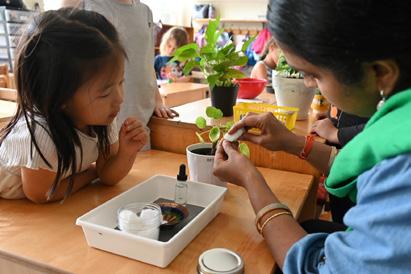
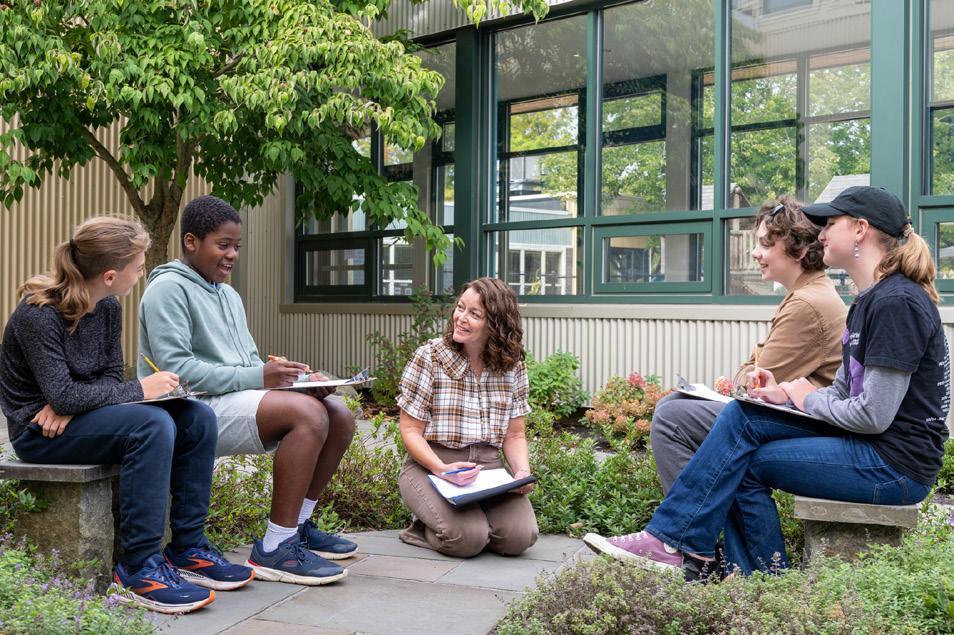





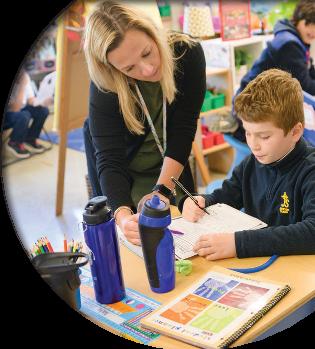

Thacher Montessori School
1425 Blue Hill Avenue
Milton • (617) 361-2522 thacherschool.org
Jackson Walnut Park School 200 Jackson Road
Newton • (617) 202-9772 www.jwpschools.org
Wellan Montessori School 80 Crescent Avenue Newton Centre • (617) 969-4488 www.wellan.org
SELA: The International Private School 137 Washington St Norwell • (781) 741-5454 www.suescuela.com
Norwood Montessori School 462 Walpole Street Norwood • (781) 762-3700 www.norwoodmontessorischool.com
Melmark New England 703 Technology Center Drive Stoughton • (781) 847-1446 www.melmark.org/newengland
League School for Autism
300 Boston Providence Turnpike Walpole • (508) 850-3900 www.leagueschool.org
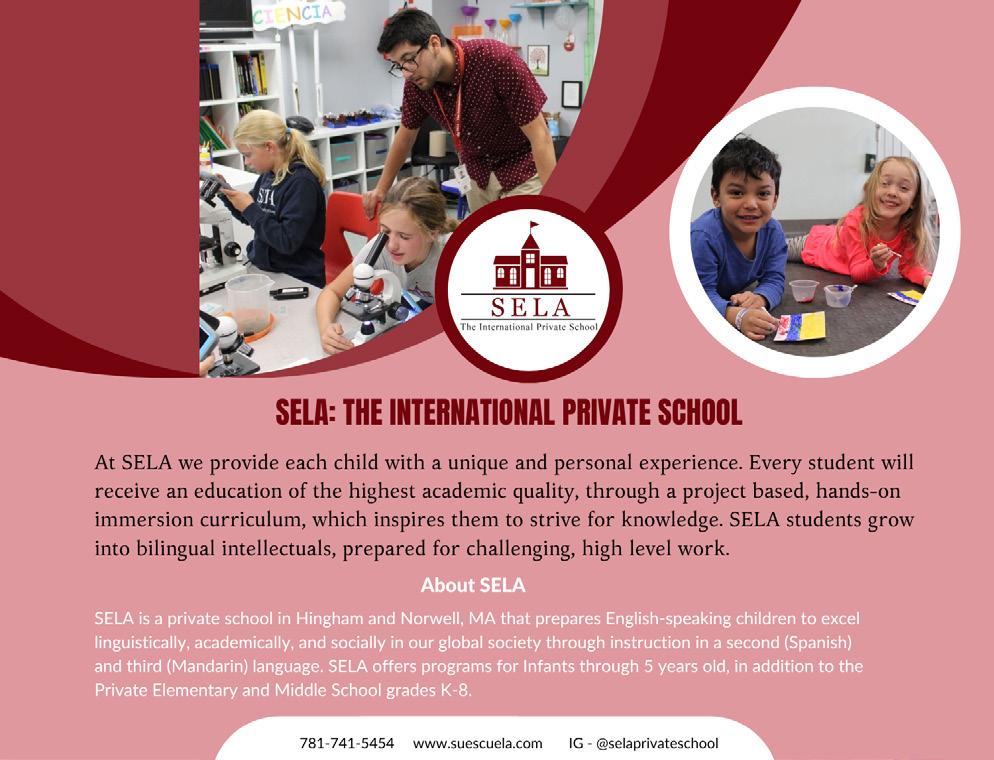

German International School Boston Lower Campus (Preschool - Grade 3) 46 Belmont Street
Watertown • (617) 783-2600 www.gisbos.org PS-12 8:1
Montessori Escuela Wayland
107 Concord Road Wayland • (508) 358-1064 www.montessoriescuela.com
Tenacre Country Day School 78 Benvenue Street Wellesley • (781) 235-2282 www.tenacrecds.org
The Fessenden School
250 Waltham Street West Newton • (617) 630-2300 www.fessenden.org
Holy Name Parish School 535 West Roxbury Parkway West Roxbury • (617) 325-9338 www.holynameparishschool.org
Tender Loving Care Childcare Center
101 River Road
Weston • (781) 703-5088
www.tenderlovingcarechildcarecenters.com
The Gardner School
739 Pleasant Street
Weymouth • (781) 277-0937 www.thegardnerschool.com/schools/weymouth
Tender Loving Care Childcare Center 23 Warren Avenue, Suite 180
Woburn • (781) 281-2983 www.tenderlovingcarechildcarecenters.com
Bancroft School
110 Shore Drive
Worcester • (508) 853-2640 www.bancroftschool.org
AISNE, DAS, MINT, Official German School Abroad (internationally recognized high school diploma)
Boys Only 5:1 544












Melmark New England
461 River Road
Andover • (978) 654-4300 www.melmark.org/newengland
Arlington
Lesley Ellis School
34 Winter St.
Arlington • (781) 641-5987 www.lesleyellis.org
Inventor Academy
54 Middlesex Turnpike
Bedford • (781) 757-0600 www.inventoracademy.us
Montessori Escuela Belmont 628 Trapelo Road
Belmont • (508) 358-1064 www.montessoriescuela.com
The Advent School 15 Brimmer Street
Boston • (617) 742-0520 www.adventschool.org
Boston Trinity Academy 17 Hale Street
Boston • (617) 364-3700 www.bostontrinity.org
British International School of Boston 416 Pond Street
Boston • (617) 522-2261 www.bisboston.org
German International School Boston Upper Campus (Grades 4-12) 57 Holton Street
Boston • (617) 783-2600 www.gisbos.org
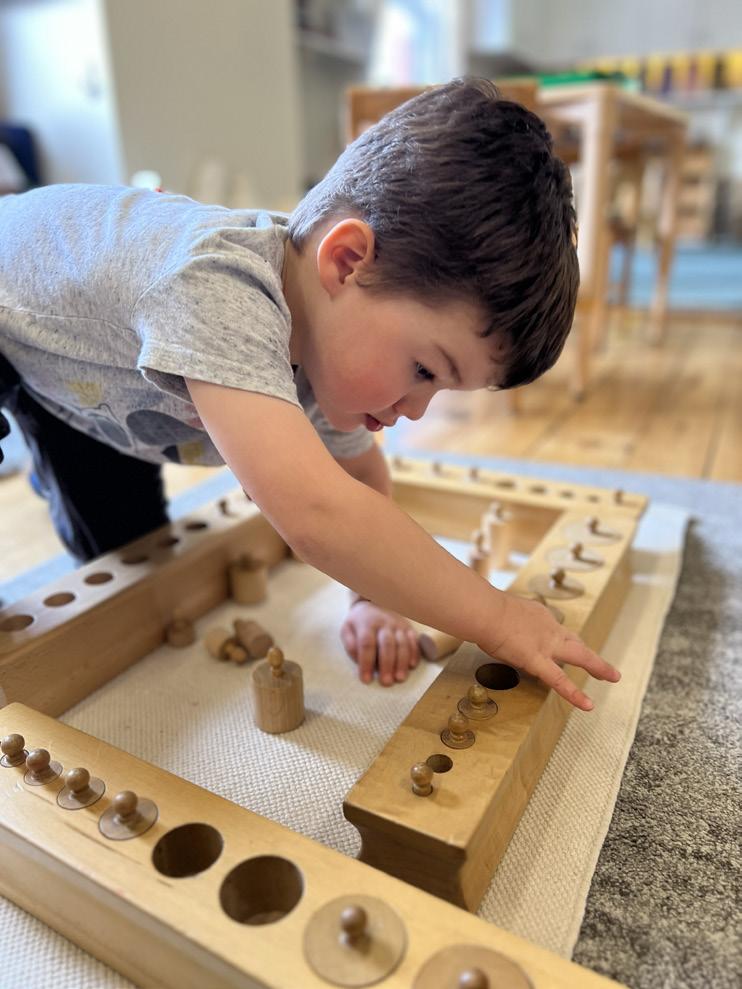
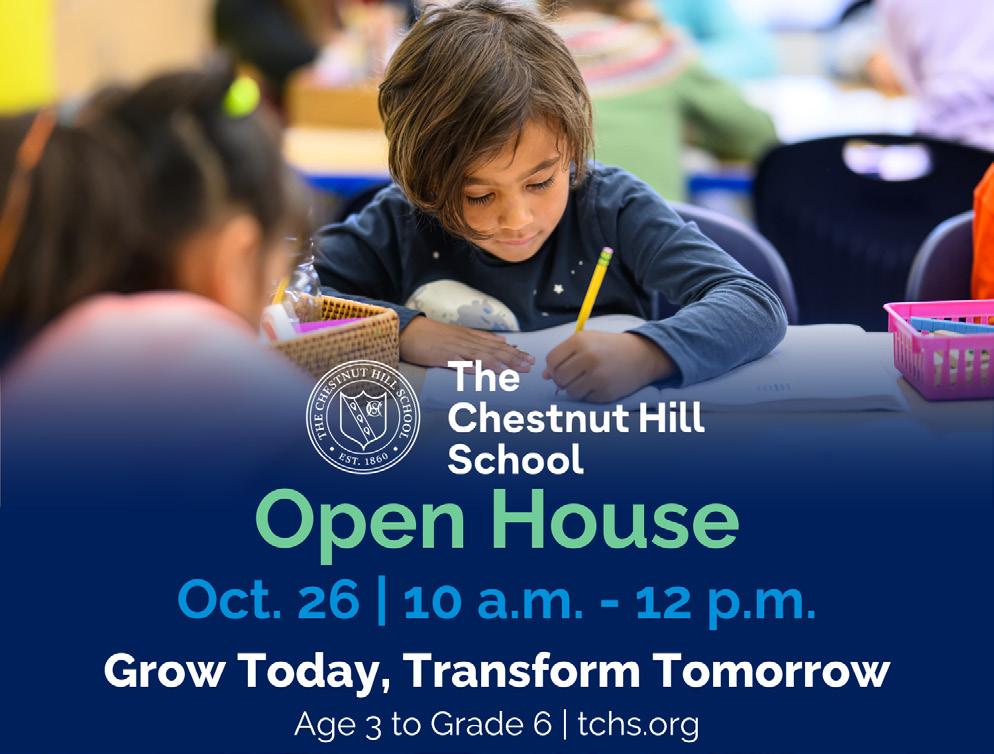
Kingsley Montessori School
30 Fairfield Street 26 Exeter Street
Boston • (617) 226-4927 www.kingsley.org
The Newman School 247 Marlborough Street
Boston • (617) 267-4530 www.newmanboston.org
Park Street School 67 Brimmer Street
Boston • (617) 523-7577 www.parkstreetschool.org
St. Mary of the Assumption School 67 Harvard Street Brookline • (617) 566-7184 www.stmarys-brookline.org


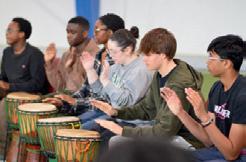


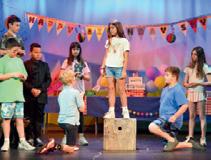
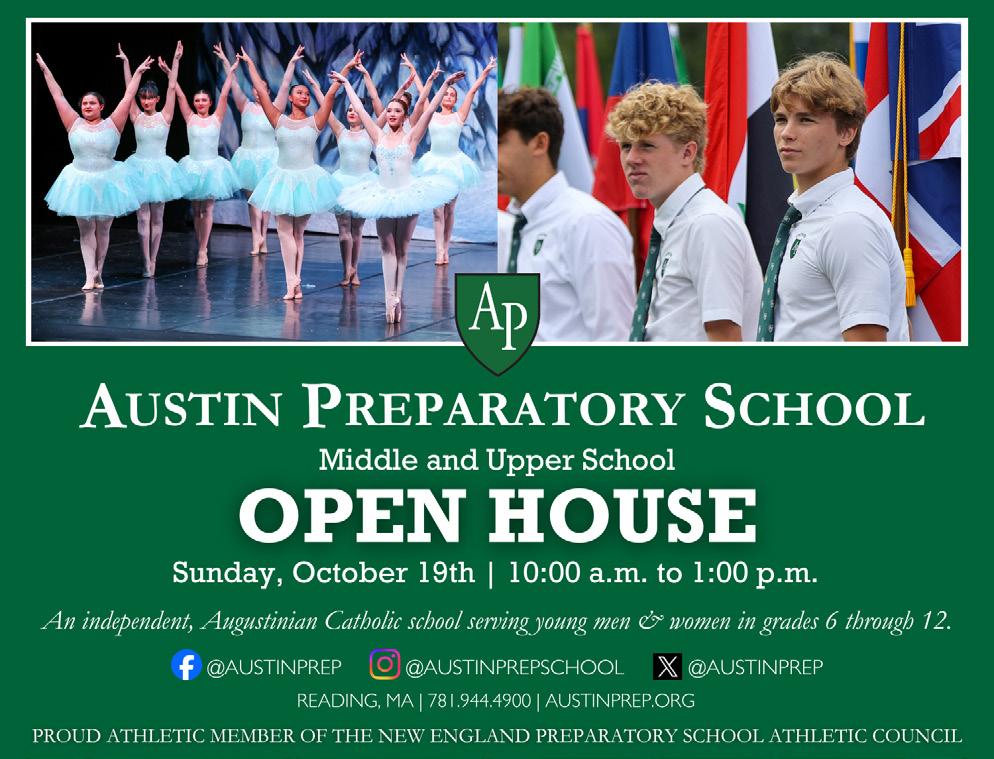
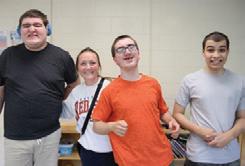
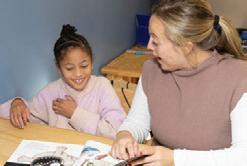
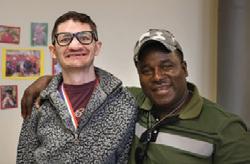
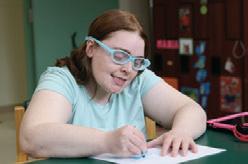

Brimmer and May School
69 Middlesex Road
Chestnut Hill • (617) 566-7462 www.brimmer.org
The Chestnut Hill School
428 Hammond Street
Chestnut Hill • (617) 566-4394 www.tchs.org
Tremont School
575 Virginia Road
Concord • (781) 235-4805 www.tremontschool.org
Dedham Country Day School
90 Sandy Valley Road
Dedham • (781) 329-0850 www.dedhamcountryday.org
Ursuline Academy
85 Lowder Street
Dedham • (781) 493-7726 www.ursulineacademy.net
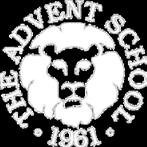



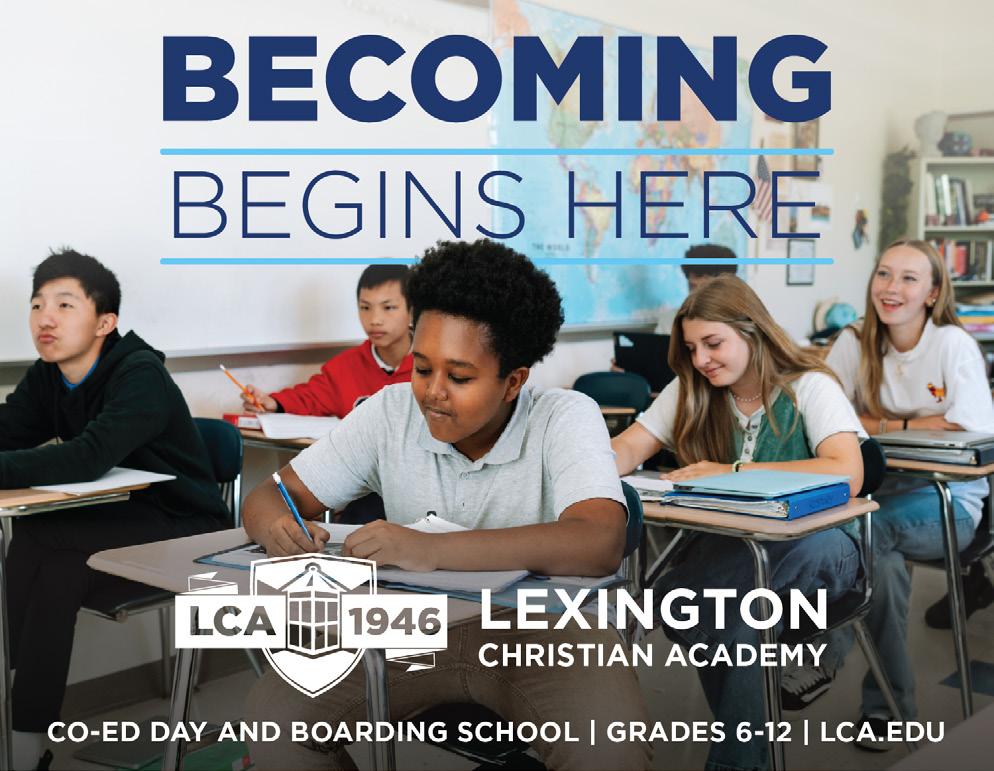
The Bement School
94 Old Main Street
Deerfield • (413) 774-7061 https://bement.org
Riverview School
551 Route 6A
East Sandwich • (508) 888-0489 www.riverviewschool.org
Applewild School
120 Prospect Street
Fitchburg • (978) 342-6053 https://applewild.org
Eagle Hill School
242 Old Petersham Road Hardwick, MA • 413-477-6000 www.eaglehill.school
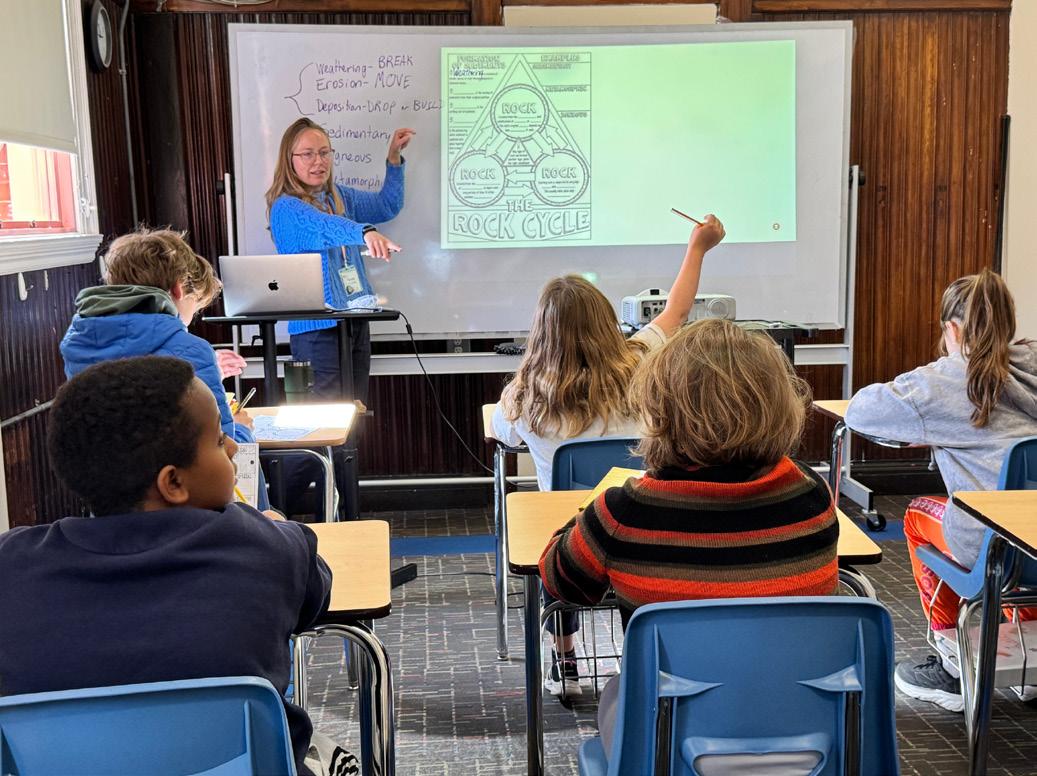
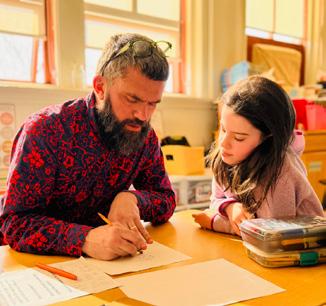

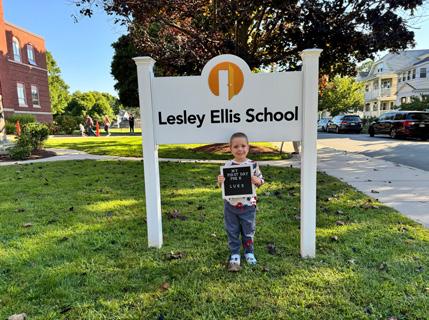
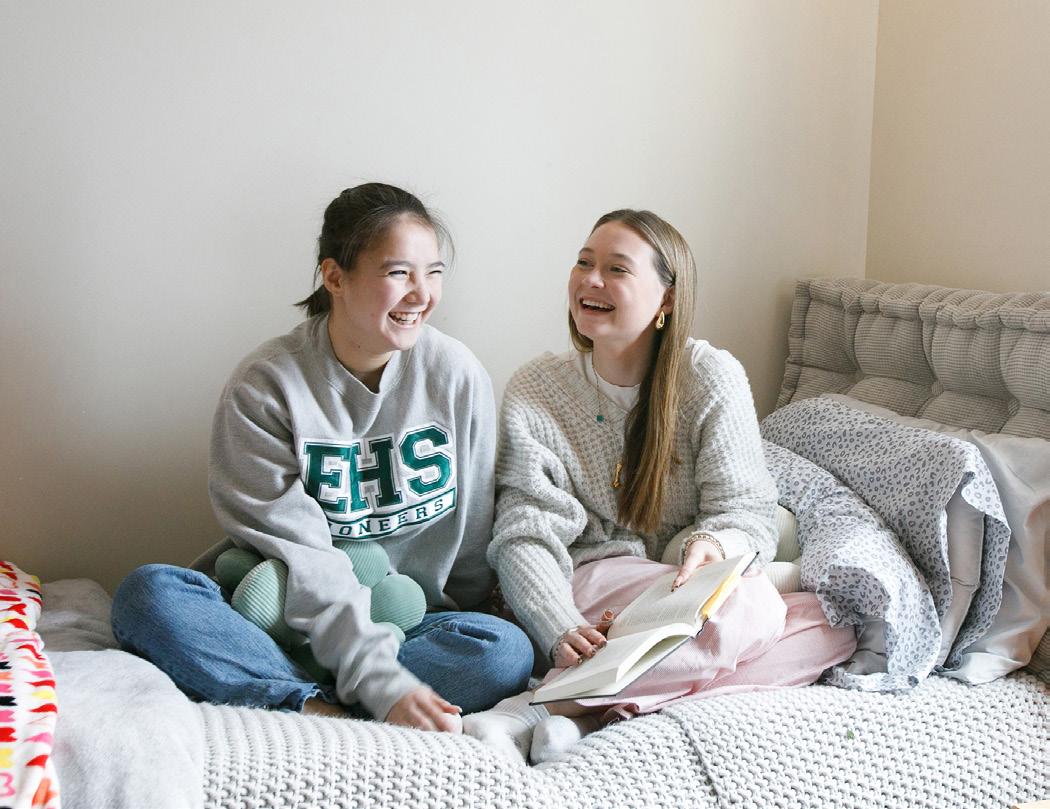

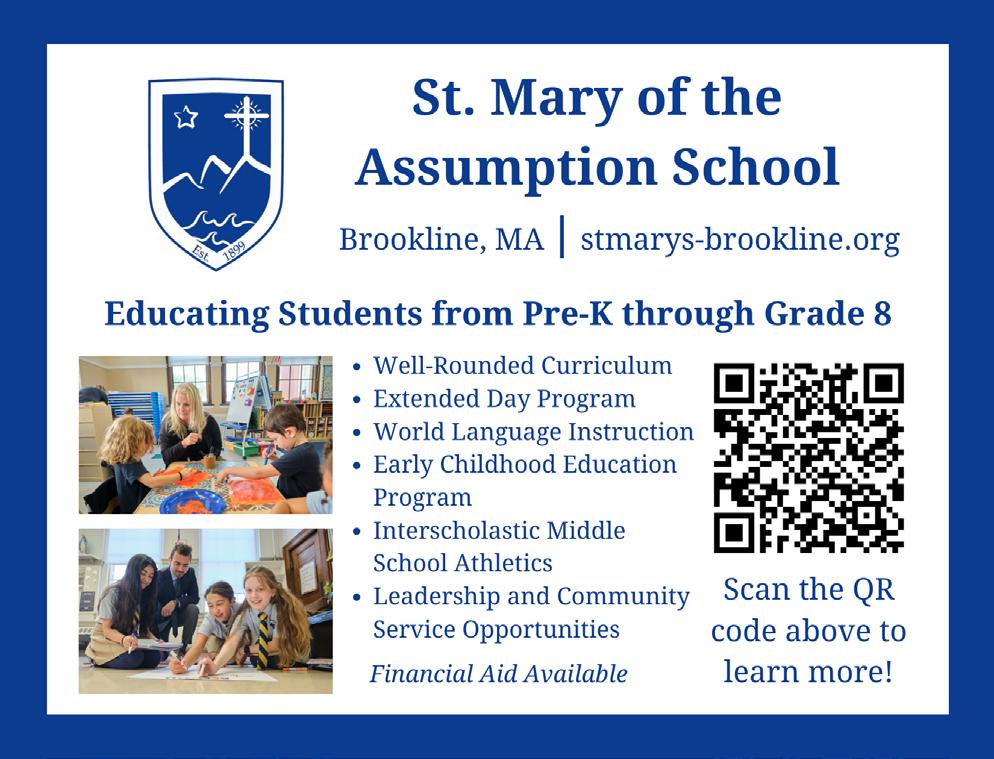
SELA: The International Private School
75 Sgt William B Terry Drive
Hingham • (781) 741-5454 www.suescuela.com
Meridian Academy
54 Brookside Avenue
Jamaica Plain • (617) 277-1118 www.meridianacademy.org
Lexington Christian Academy
48 Bartlett Avenue
Lexington • (781) 862-7850 www.lca.edu
Lexington Montessori School
130 Pleasant Street
Lexington • (781) 862-8571 www.lexmontessori.org
Waldorf School of Lexington
739 Massachusetts Avenue
Lexington • (781) 860-5208 www.thewaldorfschool.org
Oak Meadow Montessori School
2 Old Pickard Lane
Littleton • (978) 486-9874 www.oakmeadow.org
Montrose School
29 North Street Medfield • (508) 359-2423 www.montroseschool.org
Woodside Montessori Academy
350 Village Street Millis • (508) 376-5320 www.woodsideacademy.com
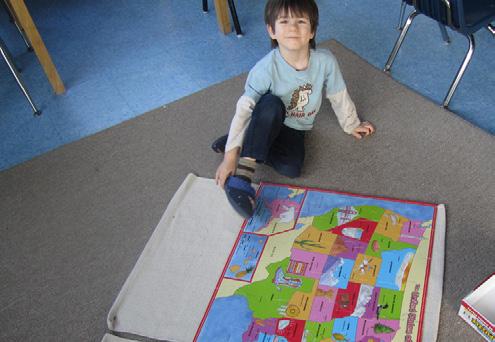
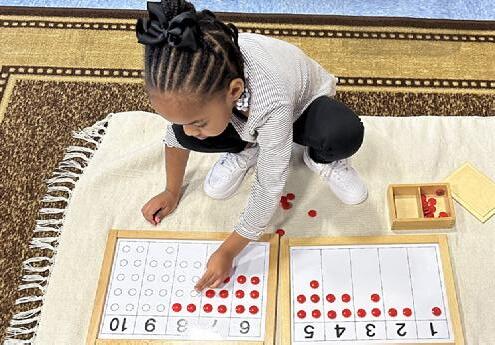
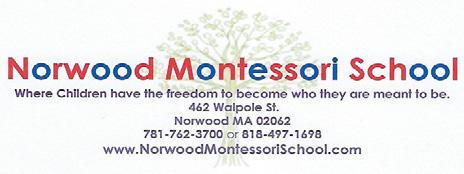

Milton
Thacher Montessori School
1425 Blue Hill Avenue
Milton • (617) 361-2522 thacherschool.org
Walnut Hill School for the Arts
12 Highland Street
Natick • (508) 650-5020 www.walnuthillarts.org
Newton
Jackson Walnut Park School
200 Jackson Road
Newton • (617) 202-9772 www.jwpschools.org
Russian School or Mathematics
200 Wells Avenue
Newton • (855) 628-4855 www.mathschool.com




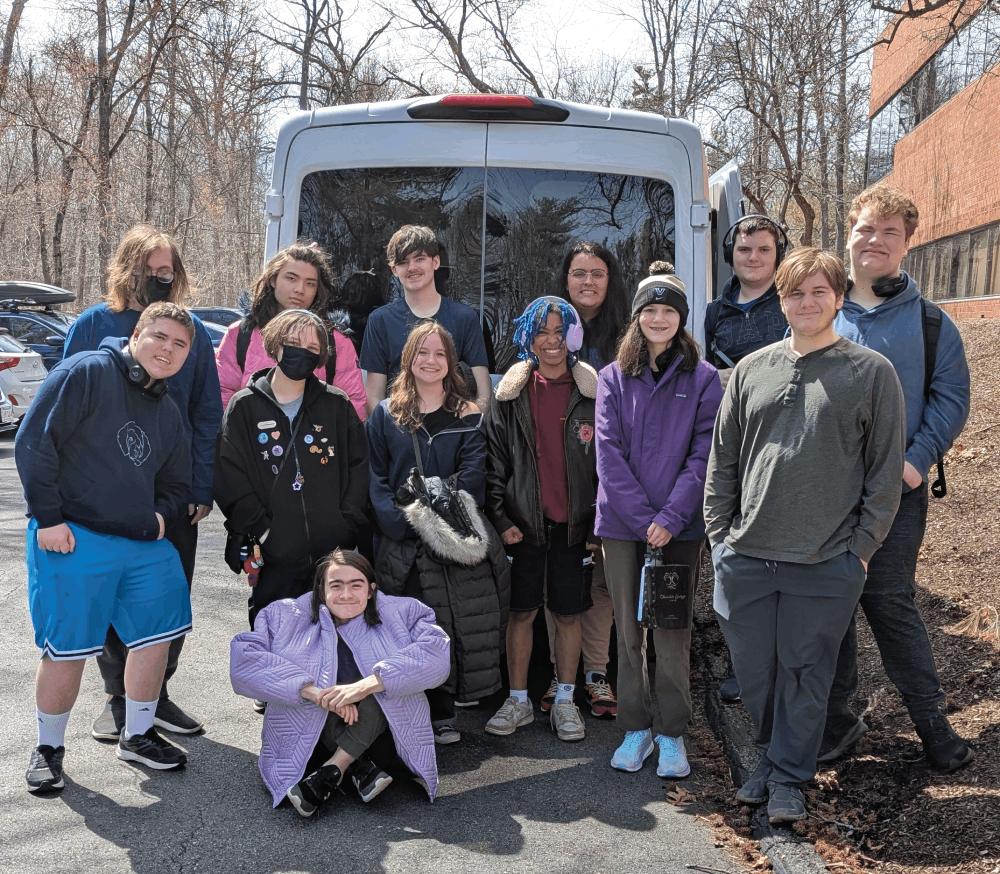
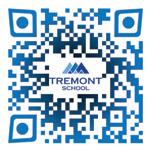
Wellan Montessori School 80 Crescent Avenue
Newton Centre • (617) 969-4488 www.wellan.org
Norwood Montessori School 462 Walpole Street
Norwood • (781) 762-3700 www.norwoodmontessorischool.com
Reading
Austin Preparatory School 101 Willow Street
Reading • (781) 944-4900 www.austinprep.org
Melmark New England 703 Technology Center Drive Stoughton • (781) 847-1446 www.melmark.org/newengland





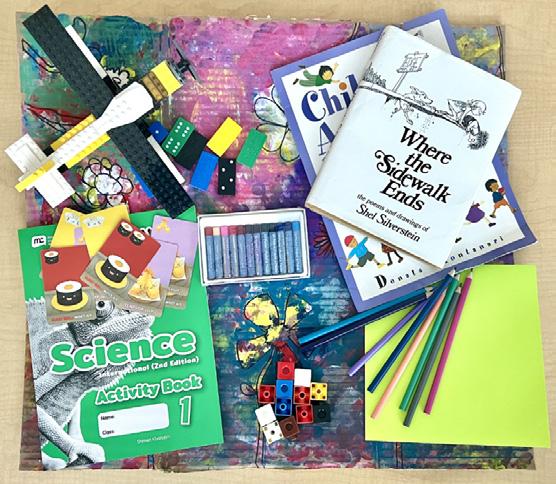

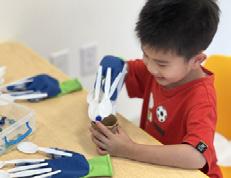


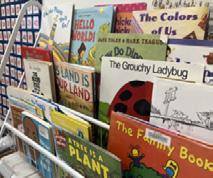


Corwin-Russell School at Broccoli Hall
142 North Road
Sudbury • (978) 369-1444 www.broccolihall.org
League School for Autism
300 Boston Providence Turnpike Walpole • (508) 850-3900 www.leagueschool.org
German International School Boston
Lower Campus (Preschool - Grade 3) 46 Belmont Street Watertown • (617) 783-2600 www.gisbos.org
Montessori Escuela Wayland 107 Concord Road Wayland • (508) 358-1064 www.montessoriescuela.com
Tenacre Country Day School
78 Benvenue Street
Wellesley • (781) 235-2282 www.tenacrecds.org
The Fessenden School
250 Waltham Street West Newton • (617) 630-2300 www.fessenden.org
Holy Name Parish School
535 West Roxbury Parkway West Roxbury • (617) 325-9338 www.holynameparishschool.org
Wilbraham
Wilbraham & Monson Academy 423 Main Street
Wilbraham • (413) 596-9107 www.wma.us
Winchester
Acera School
5 Lowell Avenue
Winchester • (781) 729-3489 www.aceraschool.org
Worcester
Bancroft School
110 Shore Drive
Worcester • (508) 853-2640 www.bancroftschool.org
French, German, Welsh, Mandarin and Japanese $69,000 - $69,500 MAAPS and DESE accredited. AANE, AISNE
AISNE, DAS, MINT, Official German School Abroad (internationally recognized high school diploma)

Riverview School is an independent boarding and day school on Cape Cod for students ages 11–22 with complex language and learning challenges.
Abilities-first approach: The understanding that every student is unique; meeting students where they are helps us prioritize individual strengths and focus on nurturing the whole student.
Comprehensive growth: Committed to supporting student development across all areas—academic success, vocational readiness, independent living skills, social-emotional learning, and overall wellness.
Supportive environment: Students thrive in a structured and predictable setting, surrounded by peers who share similar experiences and challenges, fostering a sense of belonging and community.
Small class sizes: 8:1 studentto-teacher ratio for personalized learning.

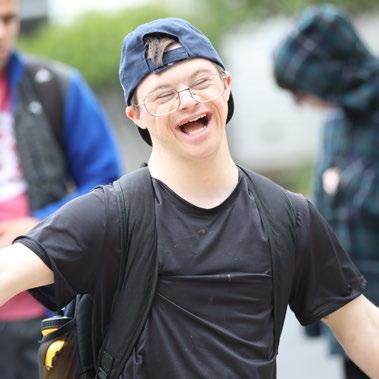
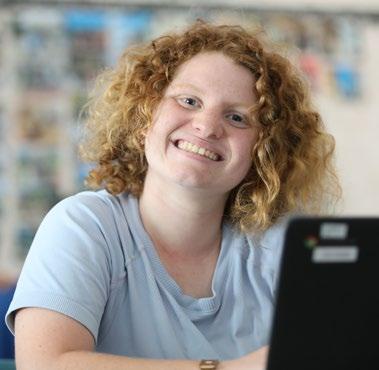

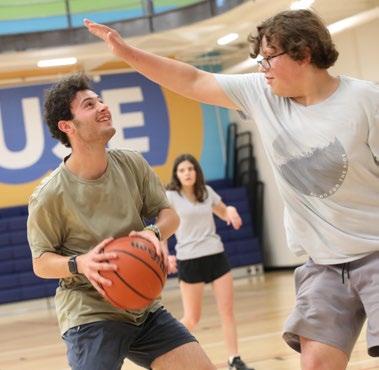

By Jan Pierce
Our children have had a rough several years of learning due to the pandemic and now it’s time to re-focus on classroom interactions. Some younger children haven’t had time to experience the way a classroom normally works. How do they behave in a large group? What if they need help? What if they make a mistake? How responsive will the teacher be to individual needs? Parents can help children take optimal advantage of their learning environment by teaching some basic learning skills. Your child doesn’t have to be top of the class to enjoy learning and be a thriving, healthy part of his or her classroom.
Here are some tips to help your child be a proactive, happy learner:
Teachers notice when children come to school prepared to learn. They have the right supplies; they’ve eaten breakfast and have had enough sleep. They brought back the permission slip for the field trip and they have their lunch money.
Yes, it’s a lot of work for parents to keep up with all the activities at school. And at some point children need to take responsibility for those things themselves, but not yet. Not when they’re in grade school and are just learning how to manage responsibilities. Be the parent who takes care of business and put your child in the best position to receive approval from the folks at school.
The best student in the world can’t be on high listening alert all day long. But successful students know when to listen carefully and that is one of the most important skills a student can learn. You can explain to your child that it’s vital to listen carefully when a teacher is giving exit directions before independent work times. These times
usually come when the entire class is gathered and a new subject is introduced. Just before the children move to work independently the explicit directions are given. Good teachers usually leave written directions where students can refer to them as they work.
Practice listening skills with your children. When are the times you need them to listen and remember? Help them see the difference between casual listening and focused listening when they need to act on the directions given.
It may seem easy to adults, but children often don’t know how to follow directions. Most directions are sequential: “Get your paper, write your name at the top, then do problems one through ten.” For some children all the words get jumbled up and they fail to do the first thing correctly. You can practice following directions at home and teach coping skills if the child forgets. Listening and following directions are key skills in learning and the earlier children can perform in these areas, the better they’ll do on classroom assignments.
Continued next page >>>


Play a game in which you give two directions: “Go to the door and tap on it three times, then stand by the coffee table.” When the child can do two directions correctly try for three. Keep adding until a mistake is made. Children can become quite adept at following directions using this method.
Here is a typical conversation in a first grade classroom: Teacher: Does anyone have any questions before we start our work? Student: “My hamster had babies last night.” This little interchange may bring smiles to adult’s faces, but it highlights the fact that many children don’t know the difference between statements and questions. And, they don’t understand the difference between appropriate questions and those that are off-task. Asking questions at the appropriate time and about the topic at hand is absolutely one of the most important skills a learner can master. It’s good to ask questions when we need information or clarification. It’s smart to ask good questions. But a child

Success
in
the classroom is more than achieving high marks on assignments. Just as in all of life, being a responsible, kind and caring person is just as important as being the best at what we do.
who hasn’t really mastered the art of asking will be lost, and without the information they need to do a good job.
Practice asking clear, concise questions. “I understand how to write complete sentences using these words, but I don’t understand how you want me to change the action words. Vague questions like “How do I do this?” or statements like “I don’t get it.” leave the teacher wondering where to begin. Say to your child, “What, exactly do you need? And then prompt until the question is clear.
Not every child will earn straight A’s. Yes, there are average students in every classroom. And that’s okay if the child is working to his or her potential. But some children seem more adept at building relationships and maintaining friendships than others. This is the child who notices when a friend is sad or needs to borrow a pencil. This is the child who shares with others and takes turns. He plays fair. She notices when a friend needs encouragement.
Don’t underestimate the value of social skills when it comes to success in the classroom. Your child may not solve every math problem correctly, but if he is a good friend and a kind, caring person, you’ve got a lot to be proud of and the classroom is enriched. Help your child notice when others seem sad. Guide them to ways to help or share or show they care.
Practice: “Did you notice that Katie seemed sad today? I wonder if we could do something to cheer her up?” Or, “I like the way you shared your Legos with your friends. Being a good friend is really important in our family.” Success in the classroom is more than achieving high marks on assignments. Just as in all of life, being a responsible, kind and caring person is just as important as being the best at what we do. Give your kids a boost by teaching them to master good classroom skills and watch them soar. Y
Jan Pierce, M.Ed., is a retired teacher and the author of Homegrown Readers and Homegrown Family Fun. Find Jan at www.janpierce.net

The journey following an autism diagnosis can be overwhelming. With 1 in 31 children now affected, you're not alone. May Institute is here to help.
For over 70 years, May has been a leader in autism care. From our May Centers for Children & Families serving young children to our specialized schools for elementary through high school students across Greater Boston, we provide compassionate, evidence-based care to equip your child with the skills they need for a fulfilling life.

or call
and schedule